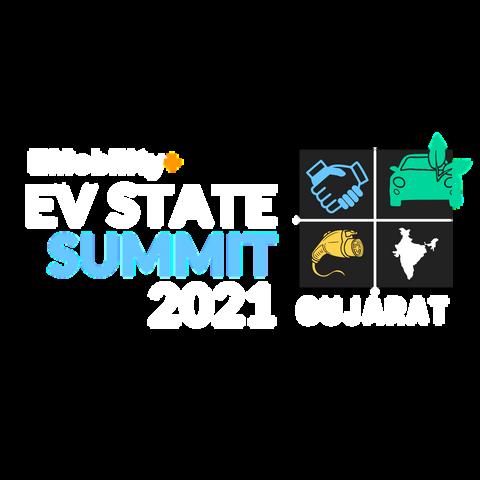
























































EV Leasing Pioneer Alt Mobility Raises $6M To Power Growth And Innovation
Alt Mobility, a tech-enabled platform for electric vehicle (EV) leasing and lifecycle management, has successfully raised $6 million (approximately ₹50 crore) in funding This funding round was co-led by Shell Ventures, Eurazeo, EV2 Ventures, and Twynam. Other participants include UC Inclusive, Piper Serica, Pitchright, and LetsVenture, contributing a mix of equity and venture debt The funds acquired will be utilized to expand Alt Mobility’s engineering team, particularly for scaling its EV asset management platform known as FleetOS The company also plans to introduce new verticals for fleets, such as a Drive-to-Own d

India’s leading Mahindra Group, specializing in farm equipment, utility vehicles, information technology, and financial services, has joined forces with Ontario Teachers’ Pension Plan Board (Ontario Teachers’), a global institutional investor Together, through their associates, they co-sponsored an Infrastructure Investment Trust (InvIT) focused on renewable energy assets Named ‘Sustainable Energy Infra Trust’ (SEIT), the InvIT has successfully raised primary capital of ₹1,365 Crore (USD 165 Million) as part of its initial offer of units (Offer) The Offer saw subscriptions from prominent global and Indian investors, including the Asian Infrastructure Investment Bank (AIIB) SEIT made its debut on the National Stock Exchange of India Limited
India-Japan Fund of NIIF to Inject ₹400 Crore into Mahindra Last Mile Mobility Limited at Valuation of Up to ₹6,600 Crore
Mahindra & Mahindra Ltd (M&M), a distinguished player in the automotive, farm, and services sectors, has entered into a binding agreement with the India-Japan Fund (IJF), managed by the National Investment and Infrastructure Fund Limited (NIIF), for a substantial investment of ₹400 Crore in Mahindra Last Mile Mobility Limited (MLMML) This business unit encompasses M&M’s last-mile mobility offerings, including three-wheelers (Alfa, Treo, Zor) and the four-wheeler SCV (Jeeto) brands Under the agreement, IJF will inject ₹400 Crore at a valuation of up to ₹6,600 Crore, resulting in IJF holding an ownership stake ranging between 6 06% and 8 25% in MLMML IJF joins the International Finance Corporation (IFC) as an investor in MLMML, leveraging the expertise of these prominent investors to drive continued growth.

Gensol Engineering Ltd. Commits ₹2,000 Crore Investment in Electric Vehicle Manufacturing in Gujarat
Gensol Engineering Limited (GEL), a prominent player in the renewable energy and electric mobility sector, has forged a transformative partnership with the Government of Gujarat, paving the way for a sustainable future in India The momentous Memorandum of Understanding (MoU), signed during the Vibrant Gujarat Global Summit 2024’s investment promotion activity, signifies a substantial ₹2,000 Crore investment in stateof-the-art Electric Vehicle (EV) manufacturing for Gensol EV. This ambitious project is anticipated to generate approximately 1,500 green jobs in the region
Evify Raises $1.3 Million In Pre-Series A Funding For Electric Vehicle Logistics Expansion
Evify, an electric vehicle logistics company, has secured $1 3 million in pre-Series A funding in a round led by GVFL and Piper Serica Angel Fund The round also saw participation from existing investors We Founder Circle and IVY Growth, along with several angel investors. Founded in 2021 by logistics expert Devrishi Arora and cleantech specialist Pragya Mittal, Evify focuses on transitioning India’s direct-to-consumer FMCG and ecommerce last-mile delivery to electric vehicles The funds will be used to expand operations across Gujarat and enhance product innovation, aiming to increase the fleet from 400 to 4,000 electric bikes by March 2025
Royal Enfield Unveils ₹3,000 Crore Investment Plan For Innovation In Tamil Nadu
Motorcycle manufacturer Royal Enfield, a division of Eicher Motors Ltd, has committed an investment of ₹3,000 crore spread across eight years in Tamil Nadu for the development of new products This financial commitment is anticipated to generate approximately 2,000 direct and indirect job opportunities in the region The Memorandum of Understanding (MoU) inked with the Tamil Nadu government during the Global Investors Meet outlines the utilization of funds for establishing greenfield and brownfield projects, focusing on new product development, Electric Vehicles (EVs), and capacity building, including enhancements for internal combustion engines (ICE), as needed

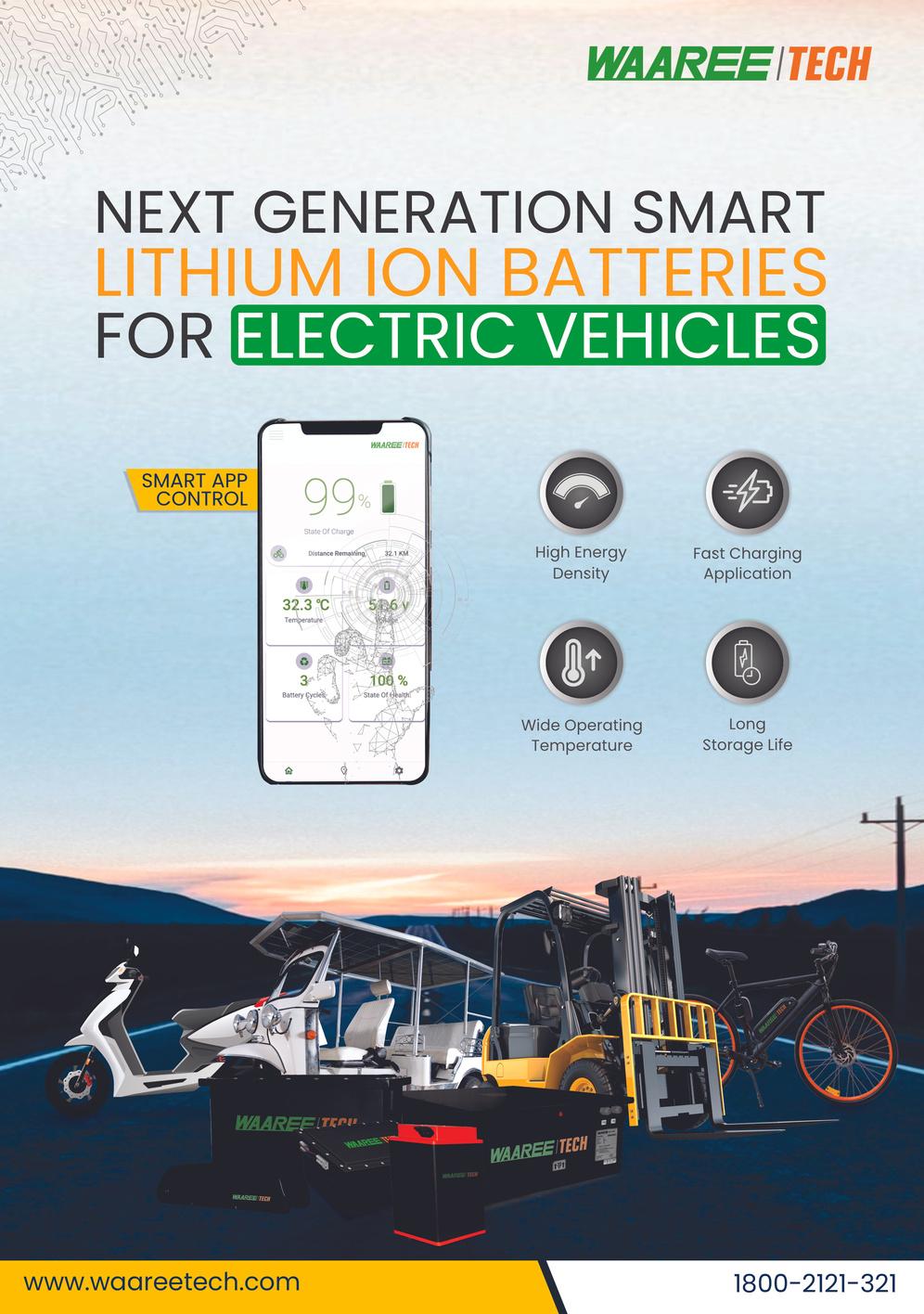

Axis Bank and GuarantCo Collaborate to Propel E-Mobility in India
Axis Bank, a leading private sector bank in India, has partnered with GuarantCo, a part of the Private Infrastructure Development Group (PIDG), to extend a significant ₹1 billion (approximately USD 12 1 million) loan over four years to Everest Fleet, India’s largest independent fleet management provider. The funds aim to facilitate the purchase of electric vehicles for deployment as green taxis in India This collaborative effort is part of the USD 200 million INR equivalent framework guarantee agreement signed by GuarantCo and Axis Bank in May 2022 The agreement enables the mobilization of funds between USD 300 and 400 million in INR equivalent, directed towards financing the emobility ecosystem in India
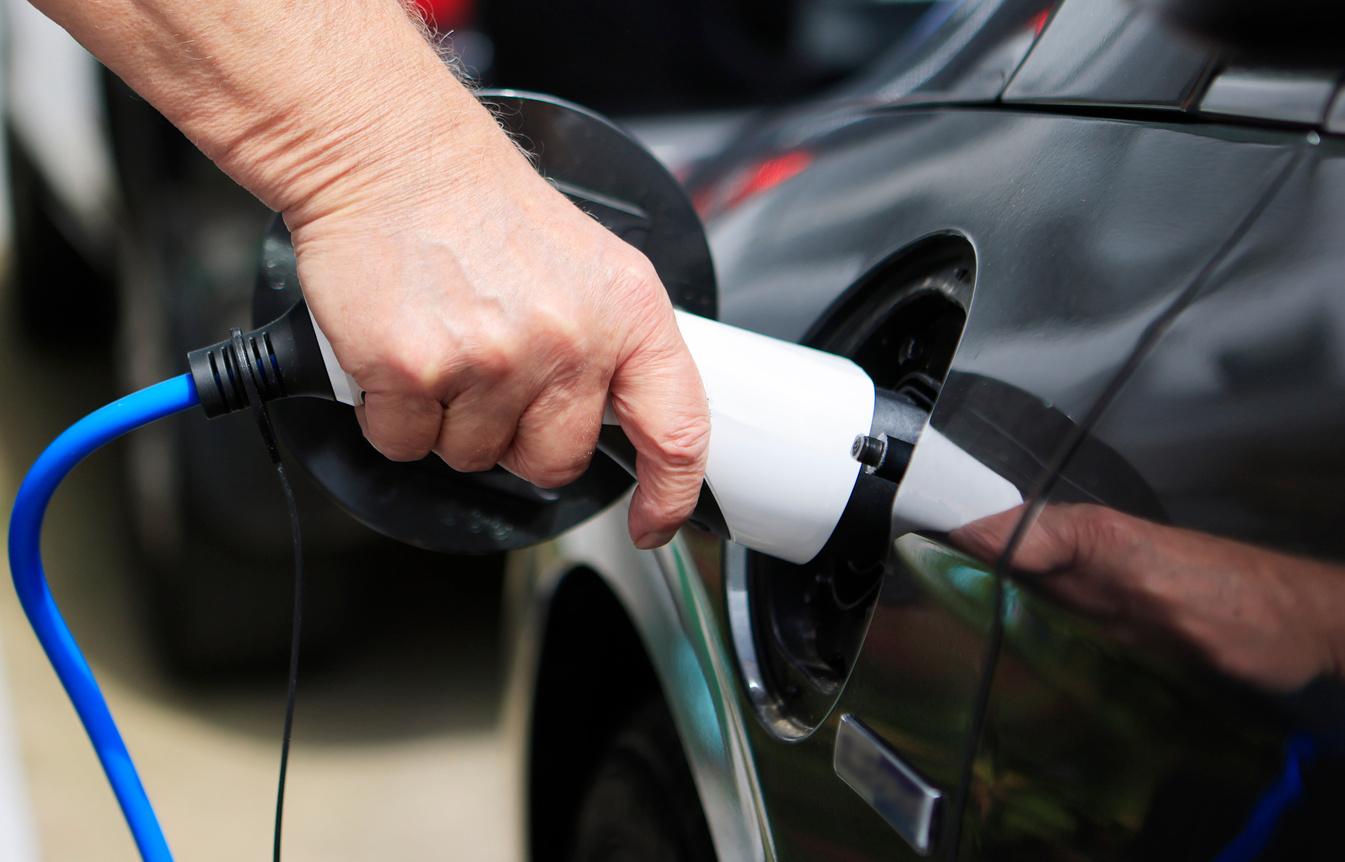
Terra Motors Commits ₹50 Crore Investment To Boost Electric Vehicle Infrastructure In Tamil Nadu
Electric vehicle ecosystem developer Terra Motors has pledged an investment of ₹50 crore to the Tamil Nadu government for the improvement of electric vehicle infrastructure in the state The company, with recent expansions across major cities in India, aims to use its advanced technology to provide efficient electric vehicle solutions tailored to the state’s market needs. The investment is expected to support India’s green transportation goals, contributing to the target of having 30% of new registered private vehicles as electric
Rincell Secures $1.2M Investment For Advanced Battery Tech Revolution
Rincell Corporation, a manufacturer specializing in advanced chemistry battery cells, secured a seed round investment of USD 1 2 million in an oversubscribed funding round led by NextGen Battery Chem Ventures LLC, a U S -based entity managed by the globally recognized venture capitalist Sandiip Bhammer With this investment, Rincell aims to expedite its mission of electrifying critical sectors through high-capacity performance batteries, ensuring a secure supply chain Jagjit Nanda, Rincell’s Chief Scientific Officer, anticipates that the partnership with NextGen Battery Chem Ventures will hasten the market introduction of their innovative silicon-graphite, LMFP, and Sodium-ion battery chemistries

VinFast And Tamil Nadu Government Sign $2 Billion MoU For Electric Vehicle Manufacturing In India
VinFast, Vietnam’s prominent electric vehicle (EV) manufacturer and the Tamil Nadu state government have inked a Memorandum of Understanding (MoU) to invest $2 billion in manufacturing and exporting vehicles from India The collaboration outlines a total investment of up to $2 billion, with an initial commitment of $500 million for the project’s first five years This strategic move marks VinFast’s significant global expansion, providing access to the world’s third-largest car market The integrated electric vehicle facility in Thoothukudi, Tamil Nadu, is expected to create 3,000 to 3,500 job opportunities and aims to become a regional hub with an annual capacity of 150,000 units
Erisha E Mobility Inks ₹6,900 Crore Agreement with Gujarat Government for Green Hydrogen and Mega EV Park
Erisha E Mobility Private Limited, a trailblazer in sustainable energy and electric vehicles, is reshaping India’s mobility landscape through groundbreaking Memorandums of Understanding (MOUs) with the Government of Gujarat These MOUs signify a collaborative effort to explore, develop, and execute innovative solutions in renewable energy The focus is on Green Hydrogen production and establishing an Electric Vehicle (EV) Park, along with deploying 100 cutting-edge EV charging hubs across Gujarat This endeavor involves a substantial investment of ₹6,900 crores
Finayo Secures ₹160 Million Funding To Boost Electric Vehicle Financing Endeavors
Finayo, a Gurugram-based company specializing in financing and asset management for electric vehicles (EVs), has successfully secured Rs 160 million in funding The investment comes from F Mec International Financial Services, Choice Finserv (CFPL), and other angel investors and high-net-worth individuals The funds will be utilized to invest in advanced technologies, expand Finayo’s presence across India, and accelerate the development of a comprehensive EV financing network.
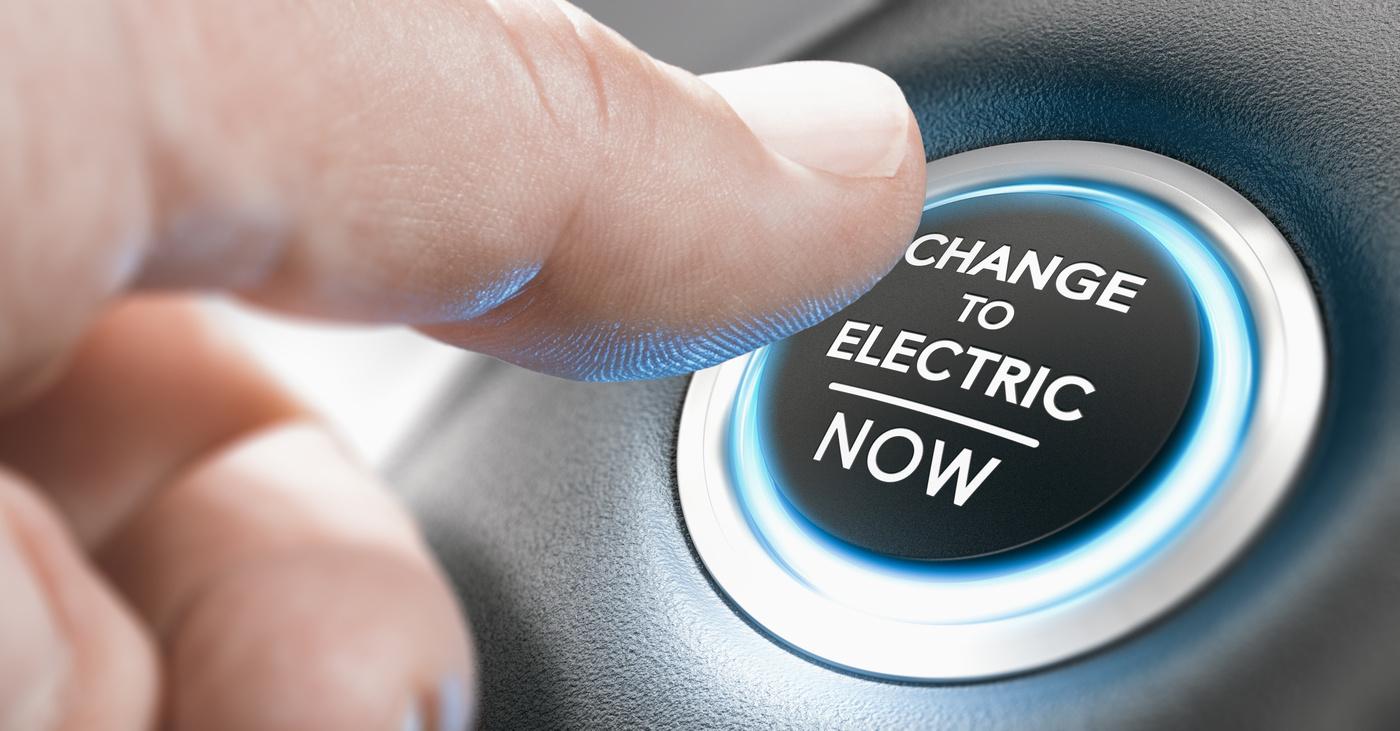
Revfin Clinches ₹14 Million Series B Funding Round Headed by Omidyar Network
In a significant move aimed at bolstering India’s sustainable mobility sector and advancing financial inclusion, Revfin, a prominent digital lending platform, has concluded its Series B funding round, securing an impressive $14 million (₹115 crore) The leading investment was spearheaded by Omidyar Network, contributing $5 million to the round Notable participation also came from the Asian Development Bank, Companion Capital Limited, alongside existing investors Green Frontiers Capital and LC Nueva This recent funding elevates Revfin’s total capital raised through both debt and equity to ₹625 Crore.
SIDBI Empowers ETO Motors With ₹12.45 Crore For Electric Three-Wheeler Deployment And Charging Infrastructure In Hyderabad And Delhi
The Small Industries Development Bank of India (SIDBI) has approved a fund of ₹12 45 crore for ETO Motors to deploy 300 electric three-wheelers in Hyderabad and Delhi, enhancing firstand last-mile passenger connectivity ETO Motors, as part of the initiative, will establish an electric vehicle (EV) charging infrastructure to facilitate the use of these electric threewheelers This financial backing from SIDBI falls within the framework of Mission 50K-EV4ECO, designed to fo electric vehicle ecosystem in India
BluSmart Raises $24 Million Funding; To Ex EV Charging Infrastructure And Ride-Hailin Service
BluSmart has raised $24 million (₹200 crores) in a new round in December 2023, which saw participation an subscription from existing investors, founders, a leadership team BluSmart is India’s largest born-elec stack, and fully integrated EV Ride Hailing service Charging Infrastructure network.
Gogoro To Advance $2.5 Billion Battery-Sw Project In Maharashtra; Belrise Steps Back
Taiwan-based battery systems provider Gogoro is pro with the $2 5 billion Memorandum of Understanding (MoU) with the Maharashtra government to establish battery-swapping infrastructure in the state but without collaboration with Punebased Belrise Industries While the MoU was signed in January 2023, Gogoro and Belrise decided not to pursue joint venture plans due to challenges in fulfilling various parameters Despite this, both companies maintain positive business ties, and Belrise continues as a strategic partner and supplier for Gogoro CrossOver The promoters express intent to explore future opportunities to contribute to India’s electrification efforts together

Hero MotoCorp Raises Stake To 39.7% In Ather Energy With ₹140 Crore Investment
Hero MotoCorp has increased its stake in Ather Energy, an electric vehicle manufacturer, by an additional 3%, investing nearly ₹140 crore This move brings Hero MotoCorp’s total stake in Ather Energy to 39 7% The investment was made by purchasing additional shares from existing Ather Energy shareholders Ather Energy had recently raised ₹900 crore through a rights issue with Hero MotoCorp and global investment firm GIC in September
Uttarakhand’s ₹1900 Crore Electric Vehicle Initiative: Erisha E Mobility Joins Forces With State Government
In a noteworthy development towards promoting sustainable and eco-friendly transportation, the Uttarakhand Government has taken a significant step by entering into a Memorandum of Understanding (MOU) with Erisha E Mobility Private Limited, a key player in the electric mobility sector The MOU, formalized on December 8, 2023, outlines a collaborative effort aimed at establishing an Electric Vehicle (EV) Park and deploying 100 cutting-edge EV charging hubs across Uttarakhand.

Eco-Friendly Financing: Axis Bank’s ₹250 Crore Loan Accelerates Green Mobility With Vivriti Capital
Axis Bank announced that it has provided a three-year loan of ₹250 crore to Vivriti Capital in collaboration with GuarantCo, a part of the Private Infrastructure Development Group (PIDG) This initiative aims to bolster electric mobility in India, with GuarantCo offering a 50% on-demand credit guarantee to Axis Bank for this transaction The financing arrangement is anticipated to contribute to the growth of electric vehicles and charging stations, aligning with sustainable development goals in India and reducing CO2 emissions.

With $390 Million US-Backed Finance Mechanism
India aims to roll out 50,000 electric buses on its streets by 2027, facilitated by a joint finance mechanism with the US At COP28, officials revealed a $390 million fund to guarantee loans for manufacturers expanding electric bus production With only 12,000 e-buses currently in operation, the payment security mechanism, funded with $150 million from the US and philanthropic groups and $240 million from India, is crucial for scaling up the financial system for electric mobility
Hindalco Plans ₹800 Crore Investment in Odisha for Battery Foil Manufacturing Facility Targeting EV Market
Hindalco Industries, the world’s largest aluminum rolling and recycling company, is set to expand its manufacturing capabilities significantly to meet the soaring demand for highquality aluminum foil, crucial in rechargeable batteries for electric vehicles (EVs) and energy storage systems In a move to cater to this burgeoning market, the company has announced an investment of ₹800 crore to erect a new facility near Sambalpur in Odisha Initially, this plant is slated to produce 25,000 tonnes of the resilient aluminum product, pivotal in the construction of Lithi i d S di i ll
India Grants ₹5,228 Crore In Subsidies As Over 11 Lakh EVs Zoom Into The Market By 1st December 2023
India’s Ministry of Heavy Industries (MHI) has successfully implemented the Faster Adoption and Manufacturing of Electric Vehicles in India Phase II (FAME India Phase II) Scheme, with a budgetary allocation of ₹10,000 crore over five years starting from April 1, 2019 The focus of this phase is primarily on supporting the electrification of public and shared transportation, providing demand incentives for 7,090 e-Buses, 5 lakh e-3 Wheelers, 55,000 e-4 Wheeler Passenger Cars, and 10 lakh e-2 Wheelers. The scheme also supports the creation of charging infrastructure
Yulu Secures $19.25 Million Investment From Magna And Bajaj Auto To Drive EV Expansion
Yulu has secured $19 25 million (approximately ₹160 crore) in funding from its existing strategic investors, Magna, and twowheeler manufacturer Bajaj Auto. This investment comes as part of Yulu’s ongoing partnership with Bajaj Auto to develop electric vehicles (EVs) The funds will be utilized to launch a new product, expand market reach, and advance technological development
Chargeup Drives Change: Teaming Up With Credit Fair And Ascend Capital For ₹100 Crore EV Loans
Chargeup, an EV platform focusing on drivers and providing Energy-as-a-Service (EaaS), has established collaborations with Credit Fair and Ascend Capital, major non-banking financial corporations (NBFCs) The collaboration aims to provide drivers in underserved tier 2 and 3 cities with easy access to credit, targeting the facilitation of ₹100 crore in quick and secured l d i th fi i l 2024 25
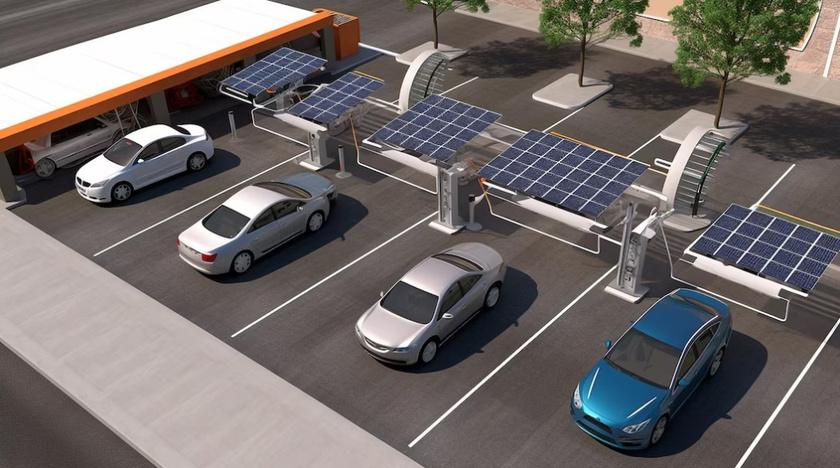

India’s Commerce And Industry Minister Piyush Goyal Calls For Ambitious 50% Export Share For Vehicles By 2030
Commerce and Industry Minister Piyush Goyal has called on the automobile industry to target a significant increase in the export share of vehicles, urging them to aim for 50% of all passenger vehicles produced in India by 2030, up from the current 14%. Goyal emphasized India’s advantages in labor costs and skilled manpower and encouraged the industry not to limit itself to a 25% export share
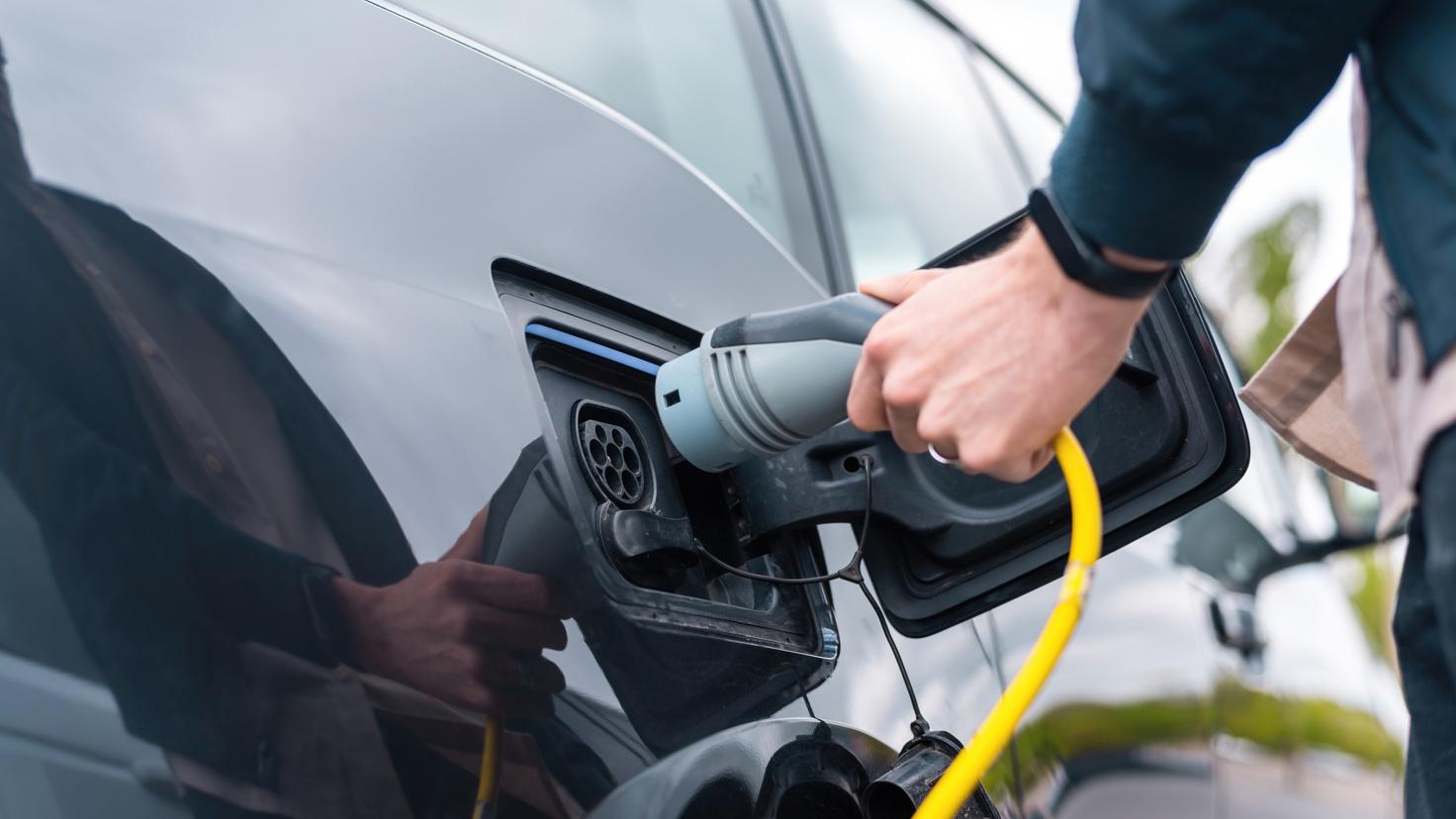
Tamil Nadu Government Explores Charging Infrastructure Along Highways To Bolster Electric Vehicle Sector
The Tamil Nadu government is engaged in discussions with the state electricity board to facilitate the establishment of charging infrastructure along major roads and highways, aiming to boost the electric vehicle (EV) sector, according to Industries Minister T R B Rajaa With a significant percentage of two-wheelers and four-wheelers manufactured in Tamil Nadu, the government envisions building a robust EV ecosystem, including infrastructure and charging stations
Himachal Pradesh Government Mandates Shift To Electric Vehicles For Departments, Restricts Diesel And Petrol Purchases From Jan 1, 2024
Chief Minister Sukhvinder Singh Sukhu has issued a directive instructing government departments to refrain from purchasing diesel and petrol vehicles starting January 1, 2024 The move aims to bolster the adoption of electric vehicles (e-vehicles) and align with the state’s vision for a ‘Green and Clean Himachal.’ Any department seeking to acquire a diesel or petrol vehicle must obtain approval from the state cabinet Chief Minister Sukhu emphasized the government’s substantial efforts, resulting in 185 government e-vehicles and 2,733 privately registered e-vehicles in Himachal.

Ministry Of Heavy Industries Grants ₹5,294 Crore Subsidy For The Sale Of 11,79,669 EVs Under FAME II Scheme As Of December 11, 2023
The Ministry of Heavy Industries in India has played a pivotal role in driving the adoption of electric vehicles (EVs) through a series of strategic initiatives Under the second phase of the Faster Adoption and Manufacturing of Electric Vehicles in India (FAME India) Scheme, the ministry has granted a substantial subsidy totaling ₹5294 00 crores for the sale of 11,79,669 electric vehicles These include 10,42,110 two-wheelers, 1,22,690 threewheelers, and 14,869 four-wheelers Moreover, the ministry has sanctioned 6862 electric buses for intra-city operations, with 3487 e-buses already supplied to State Transport Undertakings (STUs) as of November 29, 2023 Recognizing the need for an extensive charging infrastructure, Rs 800 crore has been allocated as capital subsidy to three Oil Marketing Companies for the establishment of 7,432 public charging stations.
Parliament was informed that there is currently no proposal to grant subsidies on import duty for electric vehicle imports into the country Minister of State for Commerce and Industry Som Parkash highlighted the government’s focus on implementing policies to foster industrialization, domestic value addition, and global competitiveness In response to a question in the Lok Sabha, Parkash clarified that there are no plans to provide exemptions from local value addition costs or subsidies on import duties for electric vehicles in India. Additionally, he mentioned the government’s launch of the Production Linked Incentive (PLI) scheme, aimed at boosting domestic manufacturing in the automobile and auto component industry, including electric vehicles and their components The PLI scheme encourages the establishment of large-scale manufacturing facilities in the country with a focus on advanced automotive technologies, encompassing a total of 50 GigaWatt hours (GWh)
In a bid to promote the adoption of Electric Vehicles (EVs) and maintain price parity with Internal Combustion Engine (ICE) vehicles, the Federation of Indian Chambers of Commerce and Industry (FICCI) has proposed the extension of the Faster Adoption and Manufacturing of Hybrid and Electric Vehicles (FAME) scheme for the next five years FICCI submitted its proposal to the Ministry of Heavy Industries, Government of India, emphasizing the critical need for upfront incentives to drive EV adoption The existing FAME II scheme is scheduled to conclude in March 2024, and FICCI suggests a seamless transition to FAME III, with a review after three years The sudden withdrawal of upfront incentives could result in up to a 25% price increase for EVs, potentially hampering the momentum of EV adoption and disrupting investments in the sector
Bihar Approves Electric Vehicle Policy 2023 To Achieve 15% EV Share By 2028
Bihar Electric Vehicle (EV) Policy-2023 received approval from the Nitish Kumar government, aiming for a 15% share of EVs in all state vehicle registrations by 2028 The policy focuses on accelerating the adoption of electric and hybrid vehicles through incentives on purchases and the establishment of necessary c

Indore’s BRTS Corridor Set To Transform Into India’s First All-Electric Transport System
The Bus Rapid Transit System (BRTS) corridor in Indore is set to exclusively feature electric buses, replacing all diesel-run buses on the 11 45 km route Municipal Commissioner Harshika Singh announced the initiative, aiming to make the BRTS corridor the first environmentally friendly transport system of its kind in India While the timeline for the transition was not disclosed, the Indore Municipal Corporation has already acquired ten electric buses, with plans to purchase an additional forty in the near future Currently, the BRTS stretch serves approximately 50,000 passengers daily with 49 diesel-run buses
Central Government Directs States To Accept Contract Carriage Permits For Bike Taxis
In a significant development for bike taxi operators like Rapido, Uber, Ola, and Wicked Ride, the central government has issued an advisory directing state governments and Union Territories to accept and process contract carriage permits for motorcycles, aligning with the Motor Vehicle Act This advisory addresses the ongoing legal debates between bike taxi apps and state governments, particularly in Karnataka. The move clarifies the legal standing of motorcycles for contract carriage permits, urging states to adhere to the provisions of the Motor Vehicles Act, thus providing new avenues for transportation services and income generation
Clean Air Punjab Urges Approval Of Pink Electric Auto Policy For Women In Amritsar
Clean Air Punjab urges Hardeep Singh Puri to swiftly approve the pink electric auto policy for women as part of the RAAHI project in Amritsar The initiative aims to integrate women into the transportation workforce and offers a 90% subsidy on electric autos, aligning with Punjab's efforts to tackle gender inequality and achieve net-zero emissions by 2070.

Bounce Infinity And SUN Mobility Collaborate For India’s Largest Electric Scooter Deployment
Bounce Infinity, an innovative Indian electric scooter manufacturer, and SUN Mobility, a global leader in battery swapping and energy infrastructure, have joined forces to execute the largest-ever electric vehicle (EV) deployment in India The collaboration involves the deployment of 30,000 Bounce Infinity Scooters in major markets, starting with Bangalore and Hyderabad and expanding to Mumbai, Pune, and Delhi NCR SUN Mobility will operate these scooters under both the Battery-as-a-Service (BaaS) and Mobility-as-a-Service (MaaS) models, utilizing its extensive battery-swapping network across the country
Altair Joins Forces With IIT Madras To Drive Electric Vehicle Research
Altair, a company specializing in simulation, high-performance computing, and artificial intelligence, has collaborated with the Indian Institute of Technology Madras (IIT Madras) to establish the eMobility Simulation Lab Located in the engineering design department of IIT Madras, the lab will utilize Altair’s cutting-edge tools and receive financial support from the company. Additional facilities for e-mobility research and training will be introduced at the institute in the future
Electric Revolution: Navigating Roadblocks and Accelerating Growth in India’s EV Market –Insights from CareEdge Ratings
In the calendar year 2023 (CY23), the electric vehicle (EV) market in India experienced remarkable growth, with sales volume surpassing 1 5 million units, reflecting a substantial 50% increase compared to CY22, as detailed in the report “Electric Vehicles: Revving up despite Roadblocks” prepared by CARE Ratings Limited (CareEdge Ratings) The surge in EV adoption was attributed to the introduction of innovative EV models across various segments, offering consumers improved choices Notably, the overall EV market share in the Indian automotive landscape rose from 1 75% in CY21 to 6 38% in CY23, a significant increase within just two years As the industry enters CY24, expectations are high, with projections indicating a potential sales volume surpassing 2 million units This optimism is underpinned by increasing demand, sustained government support through incentives, and a positive outlook for the EV ecosystem
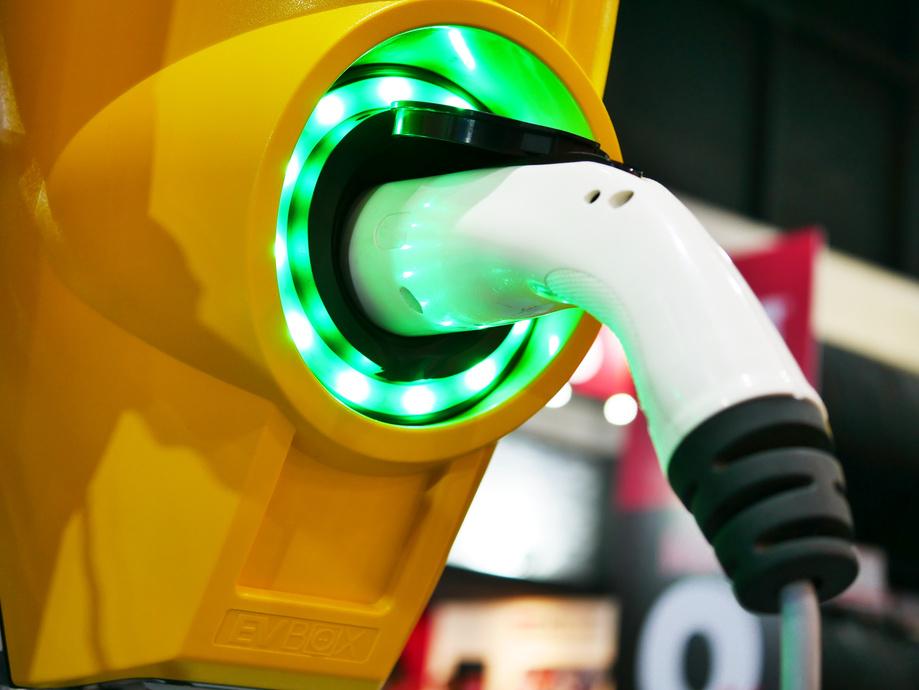
Bharat Petroleum And Trinity Cleantech Collaborate For EV Charging
Uttar Pradesh
Bharat Petroleum Corporation Limited (BPCL) and Hyderabadbased Trinity Cleantech have forged a partnership to establish exclusive DC fast-charging points for two- and three-wheelers in Uttar Pradesh. The initial three-year agreement, extendable for an additional two years, will focus on cities such as Kanpur, Lucknow, Ayodhya, Gorakhpur, Ghaziabad, Noida, Saharanpur, and Agra for the deployment of DC Fast Charging Stations at BPCL outlets in the state
Himachal Pradesh Tourism
With EV Charging Stations In All 66 Hotels
In a groundbreaking initiative towards sustainable tourism, the Himachal Pradesh Tourism Development Corporation (HPTDC) has unveiled plans to incorporate electric vehicle (EV) charging stations across all 66 of its hotels The corporation aims to implement this ambitious project within the next two months, fundamentally transforming the travel experience for tourists exploring the scenic state As part of this eco-friendly endeavor, guests checking into HPTDC’s hotels will benefit from complimentary vehicle charging services. Strategically positioned on hotel premises, these charging stations offer a convenient and cost-free solution for EV users, enhancing sustainability and visitor convenience
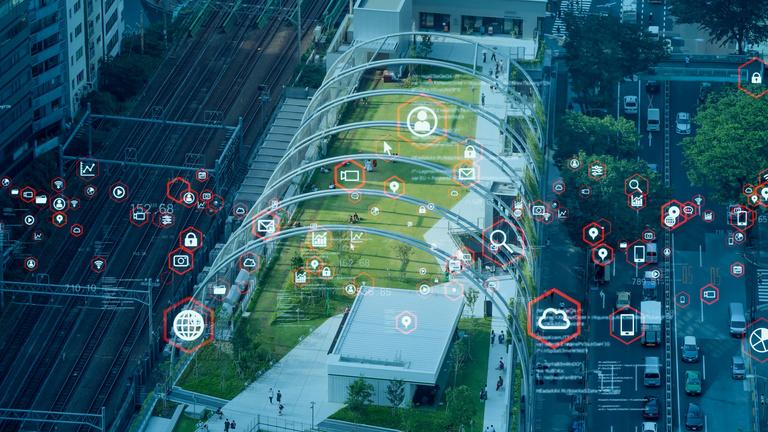
Unveiling Hydrogen’s Limits: IEEFA Emphasizes Battery Electric Vehicles as the True Trailblazers in Transportation
In a recent fact sheet released by the Institute for Energy Economics and Financial Analysis (IEEFA), the potential for hydrogen in the transportation sector takes a skeptical turn. Contrary to optimistic projections, the document asserts that hydrogen faces a daunting challenge in gaining traction, especially with the rapid expansion of battery electric vehicles (BEVs) The fact sheet underscores the temporal disadvantage of proposed hydrogen production projects, stating that by the time they come to fruition, the widespread adoption of BEVs will likely overshadow most applications of hydrogen, even in industries like trucking

ARENQ
ARENQ, a manufacturer specializing in energy storage batteries, has forged a strategic alliance with DE Power, an Asian company specializing in electric vehicle (EV) charging solutions. In an exclusive distribution agreement, ARENQ will serve as the sole distributor for DE Power’s advanced EV chargers and swapping stations across India Under this partnership, ARENQ plans to deploy around 50,000 EV chargers, ranging from 1 to 5 kilowatts, across the country. The collaboration also includes provisions for localized manufacturing of chargers in India, leveraging DE Power’s technical expertise
PMI Electro Mobility Launches 50 Electric Buses, Enhancing Green Transit In Ayodhya, Uttar Pradesh
Chief Minister Yogi Adityanath flagged off 50 electric buses (ebuses), contributing to the city’s zero-carbon public mobility initiatives Manufactured by PMI Electro Mobility, these e-buses will operate within the city limits, providing sustainable and comfortable public transport for visitors and pilgrims. PMI Electro Mobility, the leading e-bus manufacturer in India, boasts the largest eBus fleet in the state, aligning with the green transport mission of Ayodhya
ETO Motors Secures Order For 500 Electric Three-Wheelers, With Special Focus On Ayodhya
ETO Motors announced securing an order for the deployment of 500 electric three-wheelers in Uttar Pradesh, with a particular focus on Ayodhya The Uttar Pradesh government awarded the company a Letter of Award (LoA), entrusting ETO Motors with the responsibility of deploying and managing the electric threewheelers in cities such as Lucknow, Ayodhya, Varanasi, Prayagraj, Agra, Mathura, and Gorakhpur
New Delhi Municipal Council’s Five-Year Electric Fleet Plan To Hire 28 EVs
The New Delhi Municipal Council (NDMC) intends to hire 28 electric vehicles for official use over five years, as part of its ongoing transition towards electric mobility Currently utilizing 32 electric cars and five electric bikes allocated in March 2018, the NDMC has initiated a tender for the rental of Tata Nexon EV or equivalent electric vehicles, complete with drivers, at an estimated cost of ₹3 36 crore
GreenCell Mobility Invests In Wind-Solar Hybrid Plant For EV Fleet
GreenCell Mobility, a trailblazer in the electric vehicle (EV) sector, has announced a significant development through its subsidiary, GreenCell Express The subsidiary, operating under the “NueGo” brand for inter-city electric buses, has entered into a power purchase agreement and strategically invested in a 1 MW Wind Solar Hybrid captive power plant in Ratlam, Madhya Pradesh, with an annual generation capacity of 4 6 million units
In a significant move accelerating India’s electric vehicle (EV) revolution, Tata Passenger Electric Mobility Ltd (TPEM) has inked a groundbreaking Memorandum of Understanding (MoU) with prominent charge point operators (CPOs) Chargezone, Glida, Statiq, and Zeon This collaborative effort aims to elevate India’s charging infrastructure to new heights The MoU capitalizes on TPEM’s pioneering role in India’s EV landscape, leveraging insights gleaned from over 1.15 lakh Tata EVs traversing Indian roads This partnership aims to bolster the existing presence of each operator in the charging ecosystem, strategically placing chargers at locations frequented by EV owners while garnering insights to enhance customer experience.
Gogoro Inc , a leading global technology company specializing in battery-swapping ecosystems for sustainable urban mobility, has announced the immediate availability of its batteryswapping ecosystem and Smartscooters in India Alongside this launch, Gogoro unveiled its first India-manufactured Smartscooter, the CrossOver GX250 Initially targeting B2B customers in Delhi and Goa, Gogoro plans expansion to Mumbai and Pune by the first half of 2024, with consumer availability expected in the second quarter of the same year
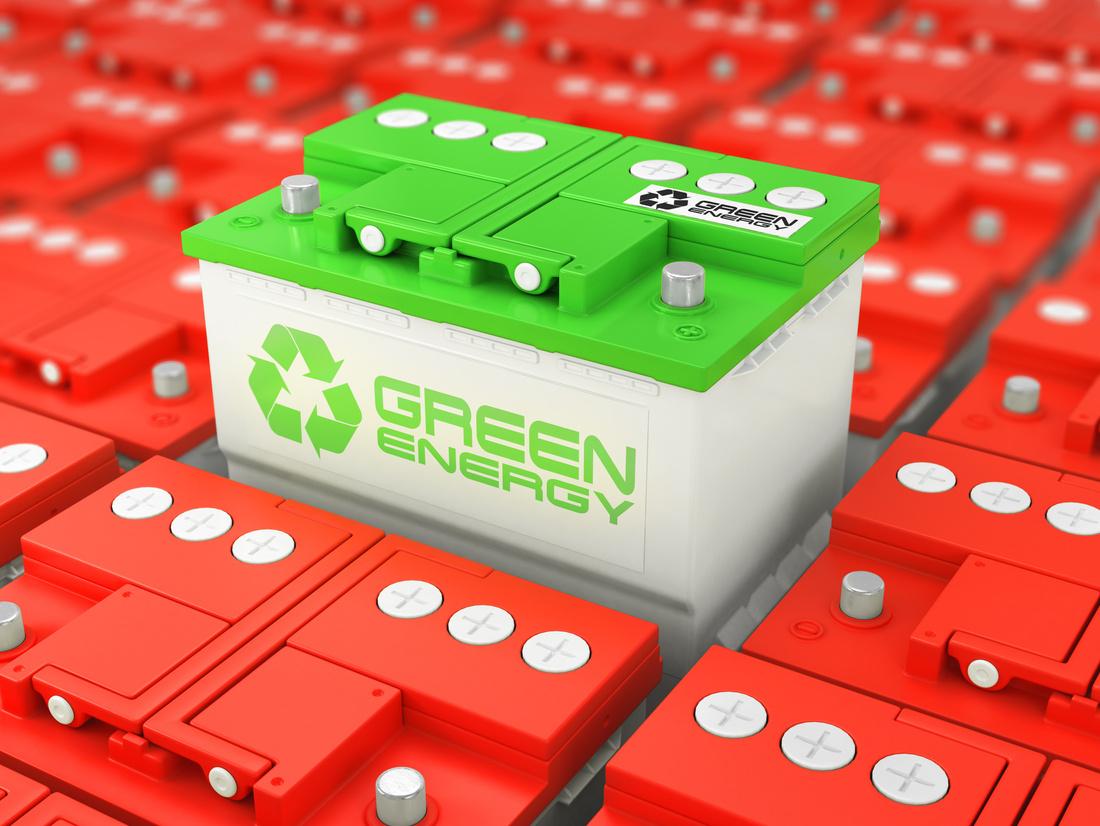
The transport department of the Delhi government has reissued a tender for the deployment of electric scooters in the Dwarka sub-city, aiming to enhance last-mile connectivity in the area, officials stated The government intends to introduce a fleet of electric scooters at approximately 90 locations within Dwarka, according to Delhi Transport Commissioner Ashish Kundra.

Log9, a leading innovator in EV charging, and Trinity Cleantech, a comprehensive solutions provider, have forged a strategic partnership. The objective of this collaboration is to establish a robust and interoperable charging network, facilitating widespread adoption of EVs Together, the partners aim to promote Type 6 fast chargers, the next-generation standard poised to revolutionize charging speed and convenience With the support of multiple Original Equipment Manufacturers (OEMs), India’s transition to a faster and more convenient EV experience is accelerated
In a significant alliance poised to redefine the automotive landscape in India, SAIC Motor, a global Fortune 500 entity with a vast international footprint and annual revenues nearing US $110 billion, has partnered with JSW Group, a leading Indian conglomerate generating around US $23 billion in revenues across diverse sectors The collaboration, sealed through the signing of the Shareholder Agreement and Share Purchase & Share Subscription agreement between SAIC’s President Wang Xiaoqiu and JSW Group’s Parth Jindal at the MG Office in London, marks a strategic endeavor to propel MG Motor’s transformation and expansion in India.
Adani TotalEnergies E-Mobility Limited (ATEL) has entered into a partnership with Kanpur Municipal Corporation (KMC) to promote e-mobility in Kanpur The Memorandum of Understanding between ATEL and the Municipal Corporation outlines ATEL’s responsibility to establish EV charging stations at 18 key locations in Kanpur. This collaboration follows the Municipal Corporation’s association with Tata Power EV Charging Solutions, tasked with installing 12 electric vehicle charging stations at six strategic locations in Kanpur
SAIC Motor, a prominent global Fortune 500 company boasting approximately USD 110 billion in annual revenues and a global presence spanning over 100 countries, has joined forces with the JSW Group, a leading Indian conglomerate with diversified businesses generating USD 23 billion in revenues This strategic Joint Venture, marked by the signing of the Shareholder Agreement and Share Purchase and Share Subscription agreement at MG UK Headquarters in London, is poised to accelerate the transformation and growth of MG Motor in India.
HMC HIVE, an arm of Hero Motors Company based in Ludhiana, has entered into a partnership with Belgian Cycle Factory, a prominent cycling company in Europe The collaboration aims to manufacture and export high-quality cycles and e-bikes from India to Belgium, with plans for the Belgian Cycle Factory to enter the Indian market in the future utilizing Hero Cycle’s extensive retail network This strategic alliance, valued at US$36 million, signifies a noteworthy achievement for both companies, poised to redefine the global landscape of bicycles and e-bikes
Ather Energy's CEO, Tarun Mehta, cautioned that the potential cessation of government incentives for electric two-wheelers in April might result in extended stagnation While the industry has reduced its reliance on subsidies, a sudden withdrawal could impede growth, deterring progress toward industry targets The FAME-II scheme's end in March and reduced subsidies since June last year have already impacted industry growth
Ola Electric has achieved a significant milestone by becoming the first Indian 2W company to be awarded the Domestic Value Addition (DVA) certificate under the Production Linked Incentive (PLI) Scheme for the automobile and auto component industry Meeting the Ministry of Heavy Industries’ DVA criteria, including a minimum of 50%, the certification was presented by the Hon’ble Minister for Heavy Industries Dr Mahendra Nath Pandey, and Hon’ble Minister of State for Power and Heavy Industries Krishan Pal Gurjar during the Auto PLI Conclave in New Delhi.

Agratas, the global battery business under the Tata Group, and Tata Technologies have unveiled a strategic collaboration aimed at scaling Agratas’ product development and enterprise systems. This partnership is poised to bolster the design, development, and manufacturing of top-notch battery solutions Harnessing Tata Technologies’ extensive expertise spanning over 25 years in product development, digital engineering, digital manufacturing, and product supply chain management, Agratas aims to expedite its product development timelines This includes the seamless integration of battery cells into modules and packs across various applications to cater to customer demands effectively
Greaves Finance Limited has announced a groundbreaking partnership with ElectricPe, India’s leading EV solutions provider This collaboration, facilitated under the evfin electric vehicle ownership platform, represents a significant step in transforming the electric vehicle (EV) landscape in India. ElectricPe, known for its extensive offerings in virtual and physical mobility centers, selling various 2-wheeler OEM brands, has joined forces with evfin to simplify and elevate the EV ownership experience.



Can you share your perspective on the evolution of India’s electric vehicle (EV) market over the last 2-3 years?
Over the past 2-3 years, India has undergone a remarkable transformation in the electric vehicle (EV) market, marked by a surge in enthusiasm EV sales have crossed the onemillion mark, with significant traction in the 3wheeler and 2-wheeler segments leading the way, followed closely by e-Buses and e-LCVs. The growth in the latter categories can be attributed to factors like contracts with State Transport Undertakings (STUs), last-mile delivery targets for commerce and logistics companies, positive customer reception, compelling total cost of ownership (TCO), and corporate mandates toward electric fleet adoption The e-bus segment has particularly flourished, witnessing a fourfold growth compared to 2019, with over 1900 buses sold in FY22-23 and an anticipated 50% growth in the upcoming period The e-LCV category is also showing signs of recovery and is expected to witness substantial growth, propelled by increased customer acceptance, advancements in charging infrastructure, and enhanced affordability This evolution aligns with the government’s vision to expand electric mobility into tier 2 and tier 3 regions, supported by robust STU tenders
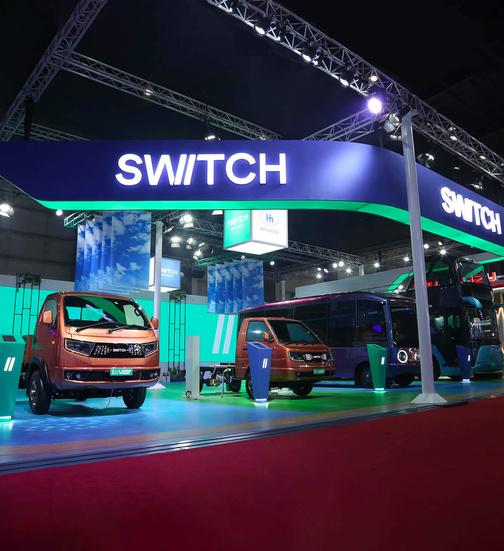

SWITCH Mobility's tech adapts to Indian roads, prioritizing durability and consumer needs
Capitalizing on India's EV market demands tailored products, innovation, and costeffectiveness.
Scaling EV manufacturing requires modular production, skilled workforce, and financial support
With the escalating EV demand and rising investments, how can one capitalize on the lucrative market opportunity?
To effectively capitalize on the burgeoning electric vehicle (EV) market in India, our company can implement key strategies aimed at seizing the opportunity One crucial approach involves developing a diverse range of EV products tailored to local applications and ensuring best-in-class Total Cost of Ownership (TCO) At SWITCH, we prioritize innovation to guarantee our customers receive optimal TCO through the creation of innovative products.
Additionally, understanding local market insights is essential, encompassing consumer needs, driving patterns, and road conditions An exemplary instance is our development and delivery of the Double Decker within a record time of less than 14 months, boasting an impressive uptime of 98 5% Moreover, focusing on durability and efficiency is paramount, to withstand the challenges of Indian roads while offering exceptional range and energy efficiency
Currently, we have 550 buses operating in India and approximately 750 globally Staying at the forefront of the rapidly evolving EV industry entails embracing innovation and technological advancements This involves continuous research and development to enhance battery technology, improve vehicle performance, and integrate connected vehicle solutions Prioritizing advancements in battery performance, range, and charging efficiency addresses range anxiety and reduces reliance on fossil fuels Additionally, incorporating cutting-edge technologies such as powertrain optimization, regenerative braking, and energy management systems contributes to superior vehicle performance The integration of advanced telematics and connectivity features further ensures a seamless and personalized driving experience for our customers
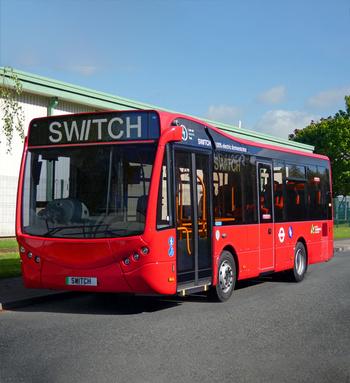
How do you evaluate the Make In India Mission? Are we on the right track to create a positive impact on the supply chain dynamics?
The Make In India Mission stands as a pivotal initiative, significantly impacting the supply chain dynamics of electric vehicles (EVs) in the country. The government’s laudable commitment to domestic manufacturing is evident in initiatives like FAME II, the Production-Linked Incentive (PLI) for the automobile industry and the PM e-bus Sewa initiative, all of which play a crucial role in establishing a robust EV ecosystem Notably, the financial support provided through the PLI Scheme for Advanced Cell Chemistry is addressing the critical need for giga-scale battery manufacturing
Additionally, measures such as GST rate cuts and road tax waivers serve as incentives for EV adoption, contributing to enhanced affordability Under the Make In India Mission, the focus on public transportation electrification, particularly through the PM e-bus Sewa initiative, is laudable for its role in reducing emissions and improving air quality This emphasis on public-private partnerships in city bus operations reflects a comprehensive approach to advancing the adoption of electric vehicles and fostering environmental sustainability
What are the hurdles and boosts for scaling EV production? How does Switch Mobility speed up manufacturing growth?
Addressing the multifaceted challenges in the electric vehicle (EV) industry requires a strategic approach, and several key areas demand focused attention Enhancing production modularity is identified as a critical aspect, involving the standardization of components, adoption of modular assembly processes, and the integration of automation to streamline production for increased flexibility and efficiency
The evolving demands of the EV sector also highlight the importance of workforce upskilling, particularly in areas such as battery technology, power electronics, and EV-specific manufacturing processes Training programs and skill development initiatives are deemed essential to cultivate a skilled workforce capable of supporting the industry’s growth Access to finance emerges as a significant challenge, necessitating efforts to facilitate financial support for EV manufacturers This involves providing government incentives, encouraging private-sector investments, and exploring innovative financing mechanisms to support capital investments and expansion plans
In navigating these challenges, SWITCH Mobility adopts a globally evolved and locally involved approach. We bring our innovative global technologies to India, customizing them to suit local driving conditions and building products aligned with consumer expectations. This commitment is underscored by strategic initiatives, including substantial investments in research and development to create innovative EV products tailored to Indian driving conditions, the establishment of a robust manufacturing facility in India with a focus on quality and efficiency, the development of a pan-India network to enhance reach, and strategic partnerships with key stakeholders such as government agencies, research institutions, and component suppliers to foster collaboration and innovation
What specific factors have been considered to tailor Switch Mobility’s technology for Indian driving conditions while keeping consumer expectations
a priority?
At the core of our approach is a dedicated focus on modularity, recognizing the diverse transportation needs of the Indian market We have meticulously designed our EV platforms with a modular framework, allowing us to create a versatile range of vehicles, from city buses to intercity coaches This modular approach not only enhances production efficiency but also facilitates rapid adaptation to specific customer requirements Understanding the challenges posed by Indian roads, known for their varying terrain, extreme weather conditions, and dense

traffic, we have integrated these realities into our vehicle design Employing high-quality materials, rigorous testing procedures, and robust chassis designs, our EVs are engineered to withstand the rigors of Indian roads, ensuring durability and reliability
Continuous innovation and technological advancements are integral to our commitment to pushing the boundaries of EV technology This dedication has resulted in significant strides in battery management, powertrain efficiency, and connectivity features, contributing to superior performance and a seamless user experience Upholding uncompromising safety standards, we adhere to the highest global safety norms, incorporating advanced safety features such as anti-lock braking systems and electronic stability control into our vehicles, ensuring the safety of passengers and other road users
Our understanding of local market requirements is reflected in the customization of our vehicles Recognizing unique preferences and needs in the Indian market, we have tailored our offerings accordingly For example, we have implemented robust suspension systems with heavy-duty shock absorbers and reinforced springs to provide stability and comfort. Additionally, our tires are designed for durability capable of withstanding potholes and rough terrains. The chassis and frame of our vehicles are engineered to handle the stress of Indian roads, with all components designed to be waterproof and dust-proof, providing protection against water logging
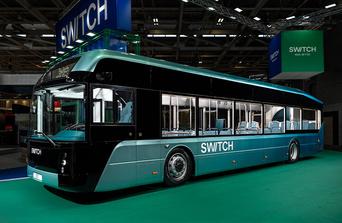
Are the policy initiatives taken by the federal government and state governments adequate for sectoral growth? What more could be done?
While acknowledging the positive strides taken by federal and state governments in formulating policy initiatives to support India’s electric vehicle (EV) industry, it is evident that further measures are essential for sustained sectoral growth A critical proposal is the introduction of the FAME 3 policy, which will be an extension to FAME 2 policy, to provide ongoing stability and encouragement for the EV industry To broaden its impact, an expansion of the scheme to encompass heavier vehicles, including buses and trucks, is recommended, thereby
accelerating the electrification of India’s commercial transportation sector Additionally, the establishment of an EV priority lending sector is proposed, aiming to simplify consumer financing for EV purchases and subsequently boost demand
Addressing the need to electrify privately managed buses, accounting for a significant portion of India’s bus fleet, the government is encouraged to introduce incentives specifically tailored for this segment Simultaneously, while the government’s plan to set up 69,000 public EV charging stations nationwide is a positive step, challenges such as high upfront investments, lower utilization, prolonged charging times, and a lack of standardization in charger types need further attention In this regard, incentivizing private companies to invest in charging infrastructure is suggested as a viable solution
In addition to these measures, the government can play a pivotal role in increasing awareness about EVs through public campaigns, addressing prevalent consumer perception challenges Furthermore, promoting innovation in the sector by offering incentives for companies to develop cutting-edge EV technologies is crucial for enhancing affordability and efficiency. Lastly, to ensure a skilled workforce that can support the growth of the EV industry, the government is encouraged to invest in upskilling programs tailored for the unique demands of the EV sector
What target has Switch Mobility set for itself as an enabler of clean transport in India?
Our commitment to advancing clean transport in India is steadfast, with a primary focus on electrifying public transportation and last-mile delivery vehicles to mitigate emissions and improve air quality In the realm of public transportation, we have successfully deployed over 500 electric buses, boasting an impressive 98% uptime, and we have ambitious plans to expand our on-road bus fleet to 2,500 within the next three years Operating across two distinct segments, our efforts have covered a significant distance of 45 million kilometers, resulting in the commendable reduction of approximately 30,000 tons of CO2 emissions This environmental impact is equivalent to the conservation of 1 8 lakh trees Recognizing the growing demand for electric vehicles in lastmile delivery, particularly within the realms of ecommerce and logistics, we are poised to leverage the untapped potential in the e-LCV segment
With confidence in Switch Mobility’s pivotal role in India’s transition to a cleaner and more sustainable transportation future, our commitment to innovation, quality, and customer service positions us to achieve ambitious targets and make a meaningful impact on the environment
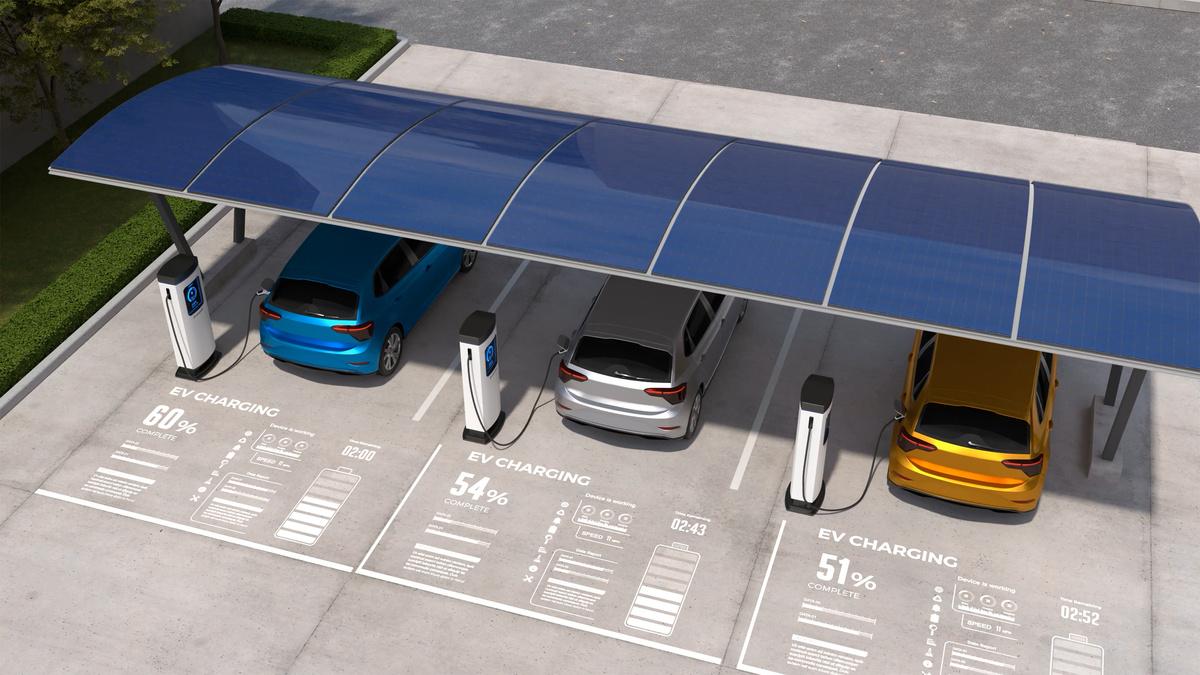
The landscape of urban transportation in India is undergoing a transformative shift, with a significant emphasis on electric vehicles (EVs) and the establishment of robust charging infrastructure. This paradigm shift is not only reshaping the way people commute but also redefining the urban environment. The impact of a well-established EV charging infrastructure is far-reaching, influencing the dynamics of urban living, business, and environmental sustainability
The surge in electric vehicles' popularity is spurred by a global commitment to reduce carbon emissions and mitigate the environmental impact of traditional fossil fuel-powered vehicles As India embraces this global initiative, the focus on developing an extensive and reliable EV charging infrastructure is becoming increasingly evident, particularly in urban centers
One of the primary advantages of a robust EV charging infrastructure is the elimination of range anxiety As charging stations become more prevalent, EV drivers can confidently navigate urban landscapes without the fear of running out of power This reassurance contributes to the widespread adoption of electric vehicles, fostering a cleaner and more sustainable mode of transportation
The impact of a burgeoning EV charging network extends beyond the realm of individual vehicle owners Businesses are recognizing the potential benefits of providing charging facilities, attracting a growing number of environmentally conscious consumers Shopping centers, office complexes, and public spaces are incorporating EV charging stations into their infrastructure, enhancing their appeal to the modern, eco-conscious demographic
The rise of electric mobility is reshaping the urban landscape in terms of city planning and architecture As cities prioritize sustainability, urban planners are integrating charging stations into their designs This integration reflects a commitment to eco-friendly transportation and aligns with the evolving expectations of residents and businesses

Moreover, a well-established EV charging infrastructure stimulates economic growth. The demand for charging stations drives investment, creating opportunities for businesses in the renewable energy and technology sectors. Entrepreneurs and established companies are seizing this opportunity to contribute to the sustainable urban transformation and capitalize on the growing market for EV-related services
The impact of EV charging infrastructure is not limited to urban centers alone As electric vehicles become more prevalent in urban environments, the influence extends to suburban and peri-urban areas This ripple effect encourages the development of charging networks in surrounding regions, promoting a more extensive and interconnected EV charging grid
The transition to electric mobility is also fostering innovation in energy storage and management The integration of smart technologies into charging stations allows for efficient energy distribution, optimizing the use of renewable energy sources This not only reduces the carbon footprint but also establishes a more resilient and sustainable energy ecosystem
Despite the positive trajectory, challenges persist in the widespread adoption of EVs and the establishment of charging infrastructure The need for standardized charging protocols, interoperability, and streamlined payment systems are key considerations for industry stakeholders Addressing these challenges is crucial to ensuring a seamless and userfriendly experience for EV owners, further incentivizing the shift towards electric mobility
In conclusion, the impact of a robust EV charging infrastructure on India's urban landscape is multifaceted Beyond the immediate benefit of providing charging facilities for electric vehicles, it influences urban planning, business strategies, and the overall perception of sustainable living As cities embrace electric mobility, the transformation goes beyond reducing air pollution and carbon emissions; it encompasses a holistic shift towards a cleaner, greener, and more sustainable urban future The ongoing commitment to developing and expanding the EV charging network in India underscores the nation's dedication to shaping a more environmentally friendly and technologically advanced transportation ecosystem

Automakers, charging firms, and fleet operators join forces to establish decentralized charging hubs for sustainable last-mile logistics
Tresa Motors pioneers’ modular battery design, optimized cooling, and data analytics, advancing efficiency and affordability in EV technology
Tresa Motors' commitment to smart grid integration, renewable energy, and scalability promises a comprehensive and sustainable EV charging ecosystem.
What is the current status of Electric Vehicle (EV) charging infrastructure development in India, and how are market players contributing to this sector?
The EV charging infrastructure in India has grown significantly in recent years, yet it is still in nascent stages compared to the rapid growth in EV sales More robust, widespread infrastructure is crucial for realizing India's sustainability goals and net-zero emissions targets At Tresa Motors, we are actively advocating accelerated infrastructure development through industry lobbying and policy recommendations We firmly believe a comprehensive charging network, rather than isolated stations, will boost confidence in intercity travel and support even faster adoption of EVs over conventional ICE vehicles and other technologies like CNG, LPG and hydrogen.
With the rapid expansion of the EV market in India, how are organizations driving innovation in specialized EV charging infrastructure solutions, and what new technologies are being introduced?
As the EV market surges, companies are driving critical innovations in battery technologies and recycling solutions to enhance efficiency, viability and align with net-zero emissions ambitions Tresa Motors is committed to cutting-edge R&D in modular battery design using cell-to-pack technology that omits inefficient modules and makes battery swapping easier We are also pioneering optimized cooling methods and data analytics for battery performance enhancement and longer lifespan Our emphasis on reuse of materials and cost reductions through scale will be key for transitioning to affordable, mainstream EVs in a sustainable manner

What strategic alliances or partnerships have emerged to propel the adoption and advancement of EV charging infrastructure in India, and how do these initiatives align with the broader goal of promoting sustainable mobility as envisioned by the government?
We are seeing promising strategic partnerships emerge between automakers, charging infrastructure companies and fleet operators to set up decentralized charging hubs and enable sustainable last-mile logistics through EVs Tresa Motors is shaping the future of decarbonized freight transportation in India through our robust EV trucks purpose-built for tough Indian conditions We believe such collaborative efforts between the public and private sector align perfectly with India's net-zero ambitions and boost confidence for inter-city EV adoption by alleviating range anxiety
How are market participants addressing the unique challenges associated with EV charging infrastructure in India through targeted research and development initiatives aimed at improving efficiency, accessibility, and affordability?
Companies are stepping up investments in R&D to address unique challenges India faces regarding efficiency, accessibility, localization and extreme conditions that strain EV performance At Tresa, our extensive investments have enabled the development of cutting-edge battery tech and charging solutions tailored to India's infrastructure constraints, power fluctuations and harsh weather landscapes Our efforts toward performance optimization, reliability enhancement and capability reinforcement affirm our commitment to accelerate large-scale transition to cleaner transport with EVs designed ground-up for Indian conditions
In light of the evolving technological landscape, how are organizations leveraging advancements such as smart grid integration, renewable energy integration, and digital solutions to optimize the performance and scalability of EV charging infrastructure across India?
Smart charging solutions, renewable integration and advanced analytics are being strategically leveraged by EV infrastructure players to optimize energy loads, enhance grid stability and scale deployments across India Tresa Motors is equipping charging hubs with robust data monitoring, automated diagnostics and proactive maintenance to make charging ultraefficient, maximally reliable and accelerate sustainable mobility adoption Our emphasis on self-sufficiency through solar power and realtime performance optimization demonstrates commitment to make India's EV infrastructure world-class
As the demand for EVs continues to surge, what is the outlook for EV charging infrastructure in India, and what key strategies or projects are in the pipeline to establish a comprehensive and sustainable charging ecosystem nationwide?
The outlook for EV infrastructure seems highly optimistic, with progressive policies, renewable energy advances and ultra-fast charging enabling growth Tresa Motors aims to catalyze adoption by driving innovations in charging solutions customized for India through collaborations spanning sectors while deploying solar-based hubs across highways With cuttingedge homegrown technology and unflinching commitment to sustainability, we support rapid growth of EVs through purpose-built solutions for India, thereby decarbonizing transport and bringing net-zero emissions within reach


As we stand on the cusp of a transformative era in the Indian Electric Vehicle (EV) industry, the journey so far has been both enlightening and challenging In retrospect, 2023 was a pivotal year that laid the groundwork for what promises to be an exciting and dynamic 2024 As the landscape evolves, it becomes imperative to reflect on the past, acknowledge the present challenges, and chart a course for a cleaner and greener automotive future
Collaboration and technology exchange have become integral, constituting the cornerstone of progress Therefore, partnerships and collaborations are not only beneficial but imperative for achieving collective success The impactful collaborations between industry giants and innovative start-ups have played a pivotal role in propelling the sector forward. Such alliances bring together the experience and resources of established players with the agility and fresh ideas of start-ups, fostering innovation and driving the industry towards new heights
The heart of India lies not just in its bustling metropolitan cities but equally in the vibrant tapestry of Tier 2, 3, and 4 cities, which 70% of the population calls home While the advantages of swap battery technology are clear, the lack of infrastructure in these regions poses a challenge It is essential to bridge this gap to make EVs more accessible and cost-effective for the majority of the population.
The upcoming year holds the promise of an expanded EV presence in Tier 2, 3, and 4 cities, marking a critical step toward widespread adoption The focus will extend beyond two-wheelers and three-wheelers to encompass four-wheelers Strategic efforts will concentrate on bolstering domestic production capabilities and creating a self-reliant ecosystem that fosters sustainable growth

As of the latest market analysis, electric two-wheelers (E2Ws) exhibit a commendable market penetration of 5%, showcasing a notable acceptance and adoption rate among consumers Electric three-wheelers (E3Ws) have demonstrated even more significant traction, with a remarkable market penetration of 54%, underscoring their widespread integration into the mobility landscape In contrast, electric four-wheelers (E4Ws) presently lag behind with a market penetration of 1%, signalling a slower rate of adoption in this particular segment As the electric vehicle industry in India charts its course into the future, addressing the challenges associated with E4Ws becomes pivotal for achieving more balanced market representation The data suggests a promising trajectory for E2Ws and E3Ws, emphasizing their established foothold, while strategic efforts are needed to propel the market penetration of E4Ws, aligning with the broader objectives of sustainable and diversified electric mobility solutions
The industry grappled with challenges in 2023, notably the introduction of AI 156-I and AI 156-II standards addressing battery fire concerns While these standards contributed to global advancements in battery safety, they inadvertently led to delays and confusion The implementation of FAME 1 added further complexities, introducing uncertainties that restrained growth Despite these challenges, the industry exhibited resilience, overcoming obstacles during its formative stages
In the financial domain, the industry has overcome earlier challenges related to EV financing Now, as we look forward to 2024, there is anticipation of a significant presence of electric trucks, particularly in the 1ton and 3-ton categories and the industry is poised for improvements in supply chain issues However, two key challenges loom large on the horizon The need for comprehensive charging facilities nationwide, including fixed, fast, swap, and innovative solutions, is paramount Addressing this challenge will facilitate widespread EV adoption A coherent and enduring government strategy is essential Sustained policy development is crucial for industry growth, stability, and predictability in the regulatory landscape A continuously evolving policy framework will enable effective navigation of challenges.
Chairman Anglian Omega Group and Omega Seiki Mobility
Crucial collaboration among government, private sector, and stakeholders for efficient, accessible charging network nationwide
Solar-powered stations, mobile charging units, and wireless technology address logistical and technical challenges across diverse regions
Expanding charging infrastructure supports India's emission goals
What's blocking EV adoption in India, and how does charging infrastructure help?
Range anxiety, the fear of running out of charge, is the main concern due to limited charging infrastructure Currently, India's network lags behind global players, creating anxiety, especially for long journeys
However, a robust charging network can significantly address these challenges Widespread charging stations, including fastcharging options, can ease range anxiety and encourage long-distance travel Additionally, readily available charging points at homes, workplaces, and public spaces can reduce concerns about accessibility and convenience, potentially making EVs a more attractive choice for daily commutes While cost remains an issue, improved infrastructure can build trust and confidence in EVs, paving the way for wider adoption
How does the establishment of an extensive charging infrastructure network contributeto alleviating range anxiety among potential EV buyers in India?
India's potential electric vehicle (EV) revolution encounters a significant hurdle: range anxiety
The fear of running out of charge, coupled with limited charging stations, hinders widespread adoption An extensive charging network directly confronts this challenge by strategically placing more stations on highways and within cities, shrinking perceived distances This not only boosts driver confidence but also promotes EVs for all travel needs, fostering spontaneity and eliminating the need for meticulous route planning The inclusion of fast-charging options at key locations further reduces anxiety, making long-distance travel more feasible A robust charging network is pivotal in mitigating range anxiety and unlocking the full potential of EV adoption in India
How crucial is collaboration among government, private sector, and stakeholders for scaling up EV charging infrastructure in India?
In India's electric vehicle (EV) revolution, collaboration is pivotal for scaling up charging infrastructure The government sets the foundation with policies and incentives, backed

by financial strength, can install diverse attracting private investment
Oil Marketing Companies (OMCs) can utilize existing petrol pump networks for charging stations, offering familiarity and trust EV manufacturers may invest in R&D for faster charging technologies and ensure compatibility with infrastructure Charging platform providers can help develop user-friendly apps for locating stations, and facilitating payments, streamlining user experience
Private entities, backed by financial strength, can install diverse charging solutions Stakeholders like urban planners, NGOs, and EV manufacturers can contribute expertise, designate charging zones, and enhance grid capabilities NGOs, and EV manufacturers can contribute expertise, designate charging zones, and enhance grid capabilities
Together, they address challenges like financing and grid integration, ensuring efficient resource allocation and fostering innovation. With a united effort India constructs a robust accessible charging network boosting EV sales and further promoting EV adoption.
How are logistical and technical challenges of deploying charging infrastructure in diverse Indian regions being tackled with innovative approaches or technologies?
India's diverse regions present unique challenges and opportunities for electric vehicle (EV) charging infrastructure To address these, Solar-powered stations can offer sustainable options in areas with unreliable grid access, particularly in rural settings
Mobile charging stations are portable DC fast chargers designed for temporary deployment in various scenarios such as events, disaster relief zones, or areas with limited infrastructure Offering flexibility, they can be easily transported and set up, providing charging access in remote or temporary locations. Their scalability allows for the deployment of additional units during peak demand or adjustment of capacity based on specific needs. On the other hand wireless charging stations transfer energy wirelessly to electric vehicles (EVs) using electromagnetic induction, akin to smartphone chargers This technology brings convenience by eliminating the need for physically plugging in, offering a seamless charging experience Additionally, it reduces wear and tear on connectors
as there are no cables to handle, and it enhances space efficiency by eliminating the need for bulky cables, potentially freeing up parking space
These approaches, combined with government initiatives and public-private partnerships can foster a more inclusive and accessible EV charging network across India's diverse regions, facilitating the country's transition towards sustainable mobility
How to make EV charging stations more affordable and accessible for diverse socioeconomic groups in India?
Ensuring affordable and accessible charging stations nationwide demands a comprehensive strategy Implementing pay-per-use models and tiered pricing caters to diverse user needs Publicprivate partnerships share costs and expand reach, especially in lower-income areas Targeted subsidies for installation and home chargers aid underserved communities Access to existing infrastructure and innovative solutions like solarpowered stations promote accessibility Financial support schemes facilitate station setup, fostering income opportunities By employing these measures, India can achieve equitable charging infrastructure, driving EV adoption across socioeconomic segment
How does expanding charging infrastructure in India support goals like cutting carbon emissions, enhancing air quality, and achieving energy independence via electric vehicle adoption?
Expanding India's charging infrastructure from just 500 public charging stations in 2015 to a robust network of 12,146 stations by 2024, directly supports key national goals By replacing fossil fuel vehicles, EVs cut greenhouse gas emissions, aligning with climate targets More charging options drive wider EV adoption, magnifying emission reductions. EVs also improve air quality, vital for public health, especially in urban areas. Reduced reliance on imported fuels enhances energy security and lowers costs aiding economic growth. The EV industry generates jobs, boosts manufacturing, and attracts investments, furthering economic development Overall, a robust charging network accelerates India's transition to sustainable transportation, fulfilling long-term visions for cleaner mobility

India boasts 16,250+ public charging stations, driven by 80+ operators, fostering diverse models across states and territories
CCS2 standardization, battery swapping, and franchising models spur EV adoption across segments, promoting scalability and efficiency
Collaborations between CPOs, energy providers, technology firms, and governments enhance infrastructure, integrating renewable and enabling smart grid solutions.
What's the current state of EV charging infrastructure development in India, and how are market players contributing?
India has recognized the need to develop an extensive network of public charging infrastructure to catalyze the large scale adoption of EVs.
As per the Bureau of Energy Efficiency (BEE), India has 16 250+ operational public EV charging stations. These charging stations are operated by 80 charge-point operators (CPOs) comprising 53 private entities and 27 public entities Private players operate 11,250+ ( 70%) charging stations whereas public entities operate 5,000 charging stations ( 30%)
While 7 states / UTs have more than 500 public EV charging stations, 21 states / UTs have less than 250 public EV charging stations
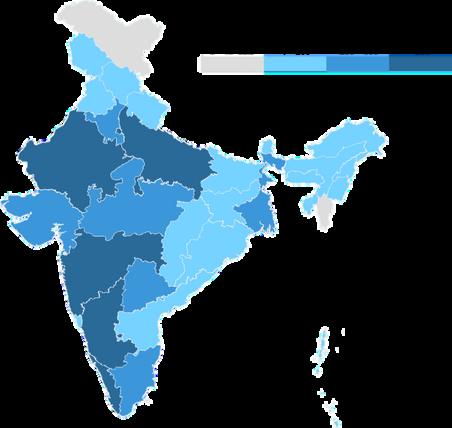
How are organizations innovating in specialized EV charging solutions amid India's EV market growth?
Organizations are actively innovating to cater to the diverse needs of this evolving landscape Here's a glimpse into how this innovation is playing out across different segments:
Standardization and Scalability in the 4W Segment:
CCS2 as the Cornerstone: Recognizing the need for interoperability and scalability, most car manufacturers (OEMs) in the 4wheeler segment have adopted the CCS2 connector as the standard This ensures a uniform charging experience across various EV models, simplifying the infrastructure development process and boosting consumer confidence
E-buses Follow Suit:

Source: Bureau of Energy Efficiency | Note: Map is indicative only

The CCS2 adoption is extending to the ebus segment as well with a growing number of manufacturers integrating this connector into their offerings This not only streamlines charging operations for fleet operators but also paves the way for intercity travel without compatibility concerns
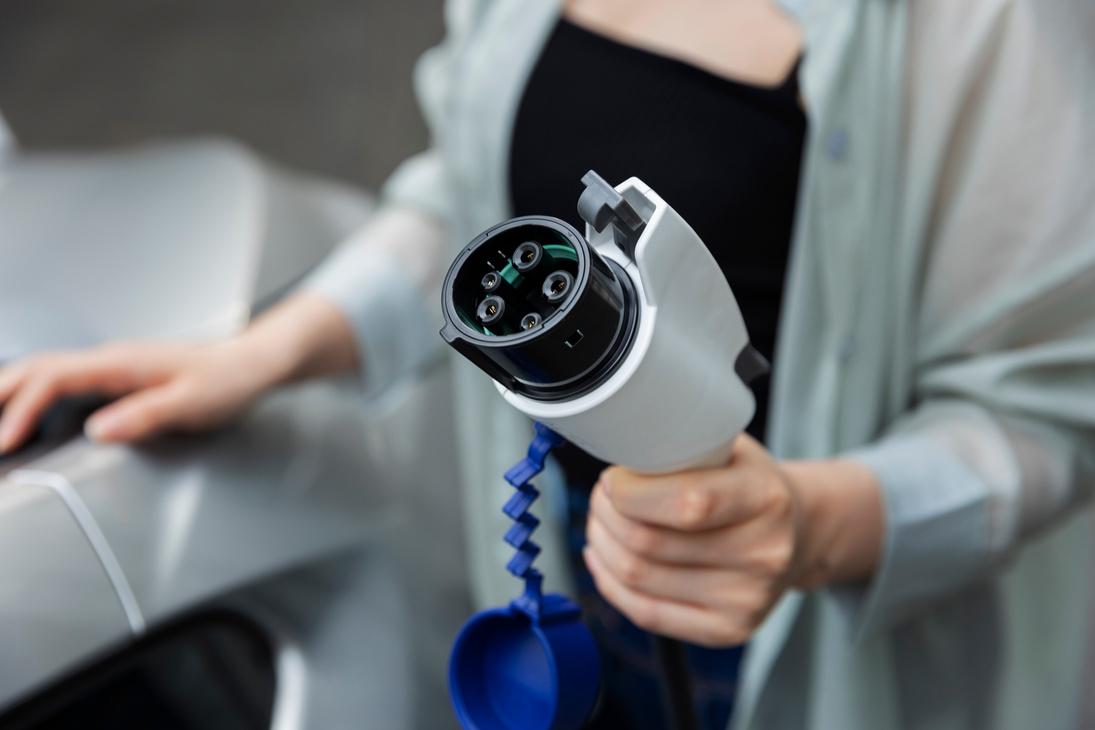
MDV/HDV Segment: Exploring
Alternative Solutions:
Battery Swapping Potential: In the medium and heavy-duty vehicle (MDV/HDV) segment, technology companies are pioneering battery swapping solutions This model aims to reduce the upfront cost of vehicles by offering them without batteries. Instead, users can access swappable batteries through a pay-per-use, subscription, or service model. This model will gain momentum with OEM acceptance and compatibility across different manufacturers
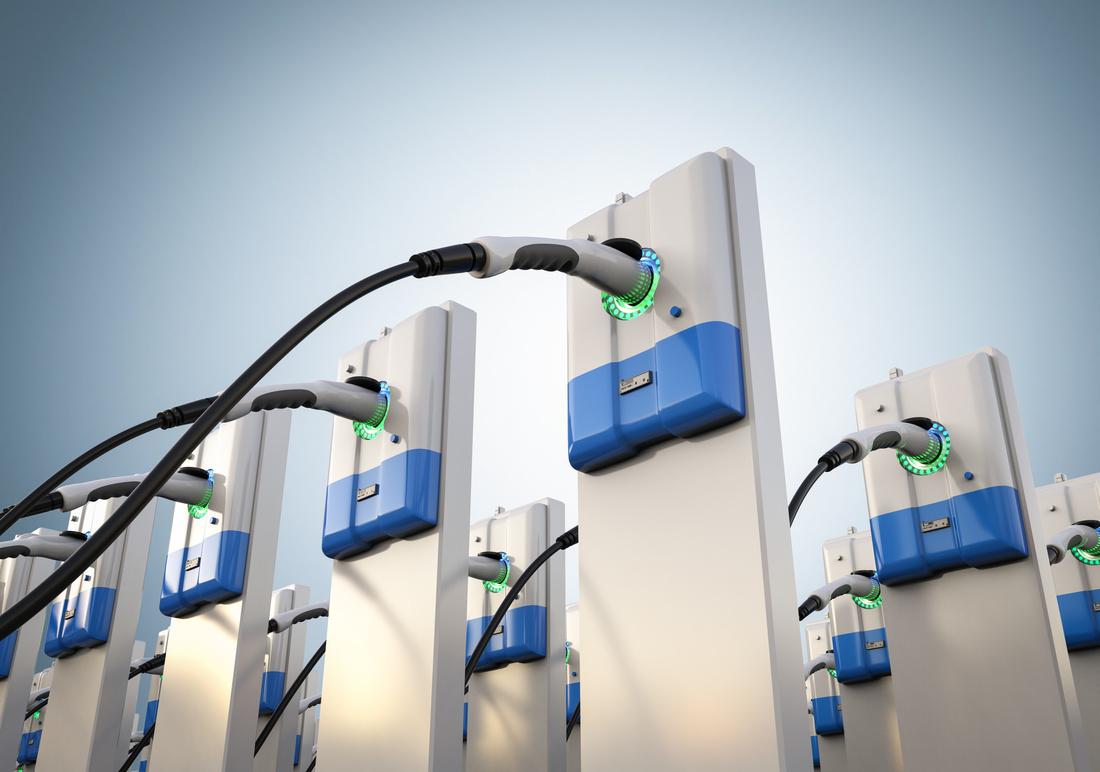
What partnerships are driving EV charging infrastructure in India, aligning with sustainable mobility goals?
In India, various business models have been adopted for the installation of EV charging stations The three models that are most predominant are –
Government-driven model:
Public land from government and public agencies is provided to CPOs for setting up EV charging stations
Consumer-driven model:
Private landowning entities enter into an agreement with CPOs for installing EV charging stations at their premises
Service provider model:
Private CPOs source land from public and private entities to offer charging services under the brand of the CPO
Source: NITI Aayog
Building India's EV charging infrastructure requires a collaborative effort, and several key partnerships are emerging to align this development with sustainable mobility goals:
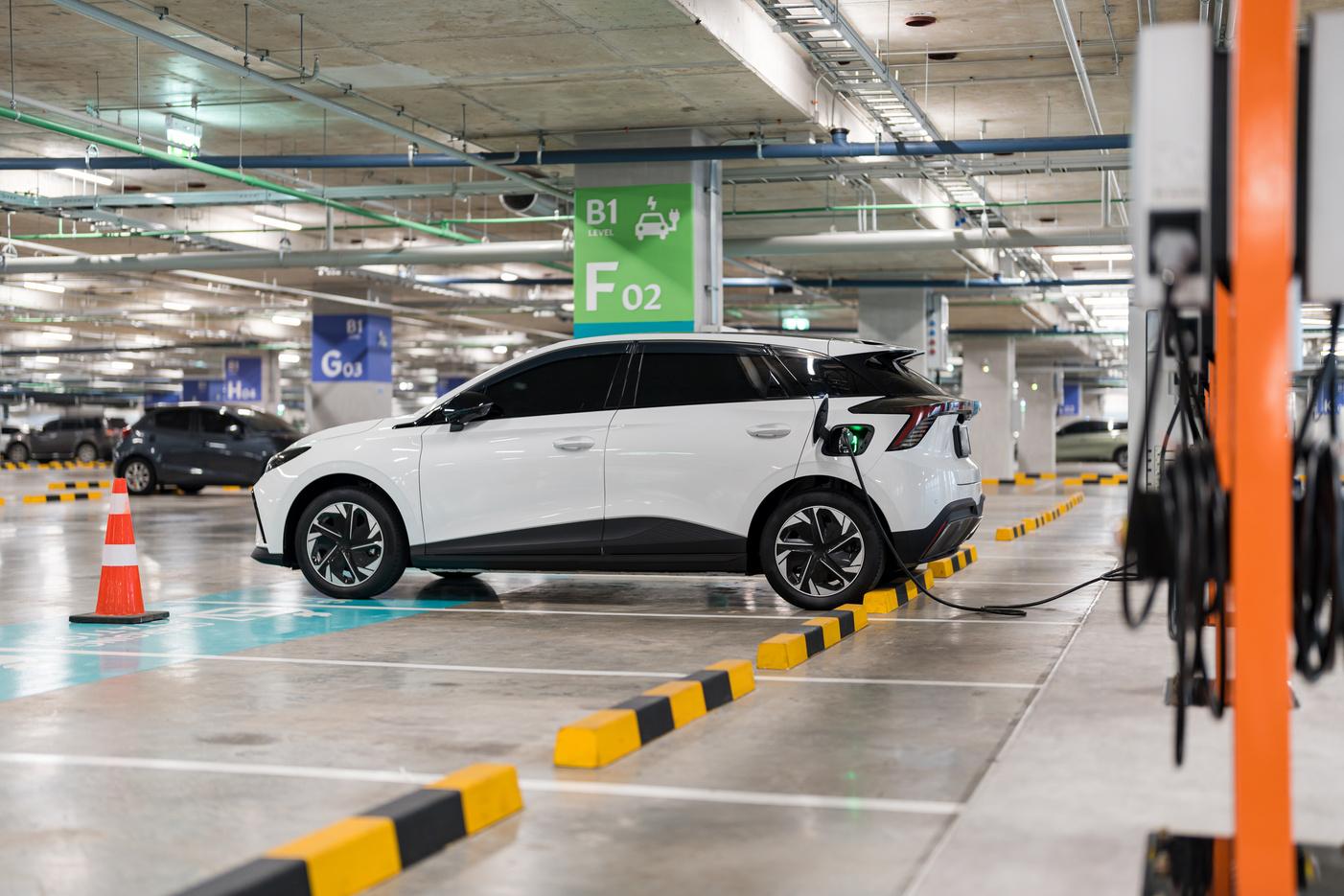
Franchising models are driving rapid expansion of EV charging networks across India Established CPOs are empowering local entrepreneurs by licensing their brand, technical expertise, and charging station management systems This partnership model allows CPOs to expand their footprint rapidly while enabling entrepreneurs to enter the EV industry with the support of a trusted brand
Energy Storage Providers and Customer Partnerships:
The Energy Storage as a Service (ESaaS) model is gaining traction, making energy storage solutions more accessible to businesses and individuals Through this partnership, energy storage providers install, maintain, and own storage systems like battery banks on customer premises Customers benefit from on-demand energy and backup power without the hefty upfront investment and technical complexities This model directly facilitates the integration of renewable energy sources into EV charging systems, ensuring sustainable power sources for expanding infrastructure Partnerships between technology companies and charging network operators are revolutionizing the management of EV charging infrastructure. IoT-enabled solutions are connecting charging stations allowing for centralized monitoring, data analytics, and remote performance optimization These technology partnerships boost charging station efficiency, reliability, and uptime This translates to a more seamless and convenient charging experience for customers, ultimately driving EV adoption
Technology Companies and Charging Network Partnerships:

Public-Private Partnerships:
Collaboration between private entities and government agencies is crucial Private players are leveraging their expertise in manufacturing, installation, and operation of charging stations, while government agencies are offering land acquisition support, policy incentives, and financial assistance This combined effort fosters the creation of strategically located charging stations in areas like highways, residential complexes, and commercial hubs, promoting convenient and reliable EV adoption, which aligns with sustainable mobility goals
Cross-Industry Collaborations:
Partnerships between EV manufacturers, real estate developers, and charging solution providers are driving development of integrated charging infrastructure within residential complexes, workplaces, and commercial spaces This improves user experience and encourages EV adoption, contributing to a more sustainable transportation system
Source: NRI report and research
Companies in the EV charging industry are actively utilizing R&D to overcome various challenges and improve the overall infrastructure Here are some key areas of focus:
1. Fast charging technologies:
High-Capacity Split Chargers:
This innovative solution separates the power cabinet from the dispensing units, allowing for multiple charging ports (e g , 8) to be connected to a single, power cabinet (e g , 240 kW) This enables simultaneous charging for several vehicles at varying power levels (30 kW to 240 kW), maximizing the charger's capacity and
In the realm of EV charging, franchising models ignite growth, as CPOs empower local entrepreneurs, fostering rapid expansion and trusted service delivery.
reducing idle time This approach is significantly more efficient compared to a standard 240 kW charger with only two ports, which can only serve one or two vehicles at full capacity at a time
Wireless charging:
Companies are exploring inductive wireless charging solutions for added convenience and ease of use
2. Grid integration:
Integration of renewable energy sources:
Research focuses on integrating solar panels or other renewable energy sources directly into charging stations, promoting sustainable and self-sufficient charging solutions
Vehicle-to-grid (V2G) technology:
This technology explores the potential for EVs to act as energy storage units, feeding power back to the grid during peak demand periods
3 Cost reduction and accessibility
Cost-effective charging solutions:
This includes exploring alternative materials, modular designs, and innovative manufacturing processes to make charging stations more affordable and widely deployable
Developing solutions for underserved areas:
Research focuses on creating portable or mobile charging solutions and exploring alternative energy sources like solar or biofuels to cater to remote or underdeveloped regions.

How are organizations using smart grid, renewable energy, and digital solutions for efficient EV charging?
The rise of EVs presents not only an opportunity for sustainable transportation but also a challenge for the existing power grid Organizations are increasingly turning to technologies such as smart grids, renewable energy, and digital solutions to address this challenge and ensure efficient EV charging.
1. Smart Grid Integration:
Intelligent Charging:
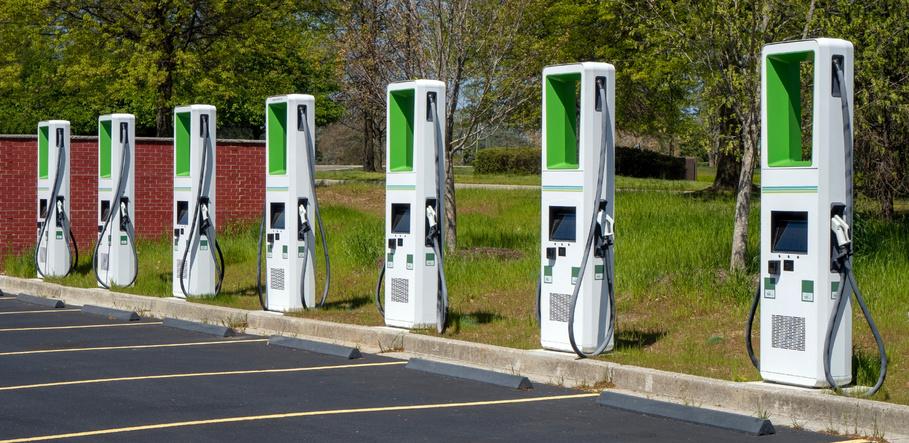
Smart grids facilitate two-way communication between EVs, charging stations, and the grid This enables intelligent charging, where charging is optimized based on real-time factors like grid load, renewable energy availability, and electricity pricing This reduces strain on the grid during peak hours and allows EVs to be charged when renewable energy sources are abundant, minimizing reliance on traditional, often carbonintensive, generation sources
Load Management:
Smart grids enable load management, allowing utilities to monitor and manage the demand for electricity from EV charging in real-time This ensures the grid can handle the increased load without experiencing overloads and blackouts
2. Renewable Energy Integration:
Matching Supply and Demand:
The intermittent nature of renewable energy sources like solar and wind can pose challenges for EV charging Smart grids act as a buffer, allowing for matching of supply and demand by storing excess renewable energy and utilizing it during peak charging times or when renewable generation is low
Cost Optimization:
By prioritizing charging with renewable energy during its peak generation, organizations can offer cost-effective charging to EV owners, further incentivizing EV adoption
Open Access and Green Power
Options: Organizations are exploring solutions like open access to procure electricity directly from renewable energy generators Additionally, DISCOMs are increasingly offering green power options, where consumers can choose to pay an additional fee to support the use of renewable energy for their electricity needs This provides EV owners with greater control over the source of their charging energy and contributes to a cleaner grid

3. Digital Solutions:
Efficient Charging through CMS
Integration:
Connecting chargers to Charger Management Systems (CMS) platforms plays a crucial role in efficient charging. These platforms provide real-time data on charger status, energy consumption, and user activity This data allows organizations to:
1
Optimize charging infrastructure: By identifying underutilized or overloaded stations, resources can be allocated efficiently.
e sector participation:
raging private players to invest in g up charging stations, including orations with PSUs and real estate opers, is crucial
ological advancements:
ting innovative solutions like battery ing stations, faster charging ologies, and smart grid integration hance efficiency and convenience
on Tier 2 and Tier 3 cities: ding the charging network beyond metros to Tier 2 and Tier 3 cities, where a significant portion of EV adoption is expected, is vital.
Key Strategies for a Sustainable Charging Ecosystem:
Standardization:
Implementing uniform charging standards across all manufacturers and service providers will ensure interoperability and user convenience
Grid modernization:
3
Implement dynamic pricing: Based on real-time grid conditions and renewable energy availability dynamic pricing models can incentivize off-peak charging and optimize costs
2. Preventative maintenance: Proactive monitoring of charger health through CMS platforms enables early detection and resolution of potential issues, minimizing downtime and ensuring reliable charging services
What's the outlook for EV charging infrastructure in India and key strategies for a sustainable charging ecosystem nationwide?
The Indian EV charging infrastructure is in its nascent stage While we have witnessed significant growth, the current ratio of 1 charging station per 135 EVs falls significantly short of the global average of 1:6 [1] This gap hinders widespread EV adoption due to range anxiety among potential buyers
EV charging infrastructure in India is promising but requires a multi-pronged approach:
Source: A&M knowledge report on EVs
Government initiatives:
The government's ambitious targets (e g , 30% EV sales by 2030) necessitate continued policy support through schemes like FAME-II, focusing on infrastructure development, standardization, and grid integration
Upgrading the power grid infrastructure to handle the increased load from EVs and enabling two-way charging (vehicle-togrid) is essential
Focus on renewable energy:
Integrating renewable energy sources like solar power into charging stations will enhance sustainability and reduce dependence on fossil fuels
Fast charging corridors:
Building exclusive fast charging corridors along major highways with the capacity to accommodate all types of electric vehicles (two-wheelers, three-wheelers, cars, and buses) will significantly reduce travel time and range anxiety for long-distance journeys This will be particularly crucial for intercity logistics and passenger transportation
Security for EV charging stations:
Co-locating battery swapping stations at EV charging stations can be a cost-effective strategy for CPOs to deter theft and vandalism Since battery swapping stations are typically manned, they can provide an additional layer of security for both the station and unattended EVs
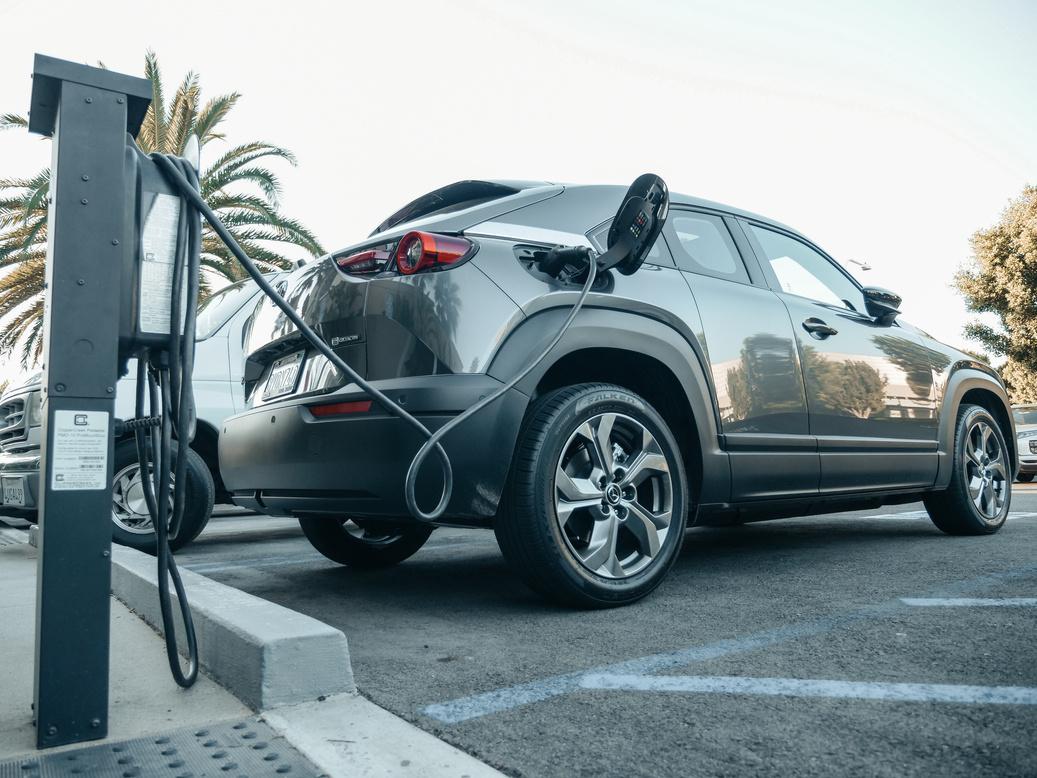
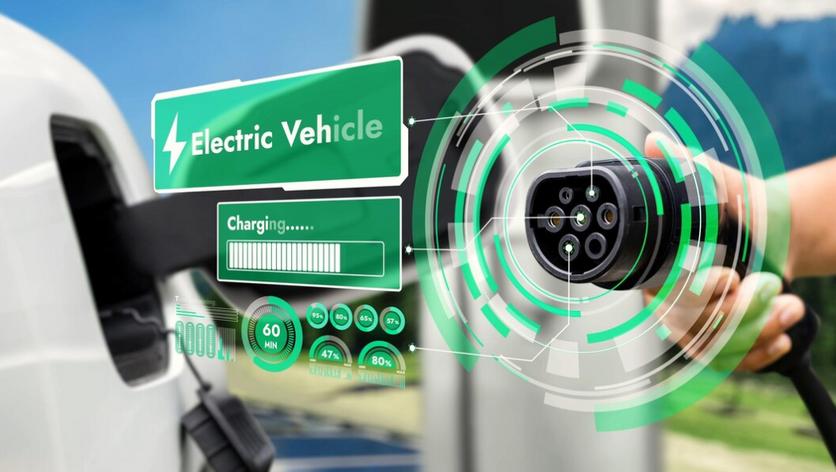
The electric vehicle (EV) revolution is reshaping the transportation landscape globally, offering a sustainable alternative to traditional fuelpowered vehicles While this shift towards cleaner energy is gaining momentum in urban centers, it is crucial to address the inclusivity aspect, ensuring that the benefits of this revolution extend to rural areas as well One key component of this inclusive approach is the development of an inclusive charging ecosystem, specifically tailored to empower rural India in the EV revolution
Rural areas in India, often characterized by dispersed populations and limited access to urban amenities, present a unique set of challenges for EV adoption However, they also hold immense potential for sustainable growth and reduced carbon emissions Recognizing this, initiatives are emerging to build a robust charging infrastructure that caters to the specific needs and constraints of rural communities
One of the primary challenges in rural areas is the lack of access to a reliable and widespread charging infrastructure To address this, innovative solutions are being explored, such as community charging stations powered by renewable energy sources These stations can be strategically located to serve multiple villages, reducing the need for individual charging points in every remote corner This not only makes EVs more accessible to rural residents but also promotes the use of clean energy for charging
Moreover, the inclusion of solar-powered charging stations aligns with India's commitment to renewable energy By harnessing the abundant sunlight available in rural areas, these charging stations contribute to a more sustainable and environmentally friendly EV ecosystem This decentralized approach to charging infrastructure ensures that rural communities are not left behind in the transition to electric mobility
Affordability is another critical factor in making EVs accessible to rural populations. To overcome the financial barriers, innovative financing models are being explored, including partnerships with local financial institutions and government-backed schemes. These models aim to make EVs more affordable and within reach for rural consumers, thus democratizing the benefits of cleaner transportation.

In addition to charging infrastructure, skill development and awareness campaigns play a pivotal role in ensuring the successful integration of EVs in rural areas Training programs can be designed to educate local technicians on EV maintenance and repair, fostering a self-sufficient ecosystem that can address technical issues locally Simultaneously, awareness campaigns can dispel myths surrounding EVs and highlight their long-term cost benefits, encouraging rural communities to embrace this sustainable mode of transportation
Furthermore, the integration of EVs into rural livelihoods can be explored Electric vehicles, especially e-rickshaws and e-carts, present economic opportunities for individuals in rural areas. Initiatives promoting the adoption of electric mobility for transportation of goods and passengers can create local employment and boost economic activities, contributing to overall rural development
In conclusion, an inclusive charging ecosystem is fundamental to ensuring that the benefits of the EV revolution permeate rural India By addressing challenges such as limited infrastructure, affordability, and awareness, innovative solutions are laying the foundation for sustainable and equitable growth. As the electric mobility landscape evolves, fostering inclusivity in the charging infrastructure is not just a necessity but a catalyst for empowering rural communities, driving economic growth, and contributing to India's journey towards a cleaner and greener future
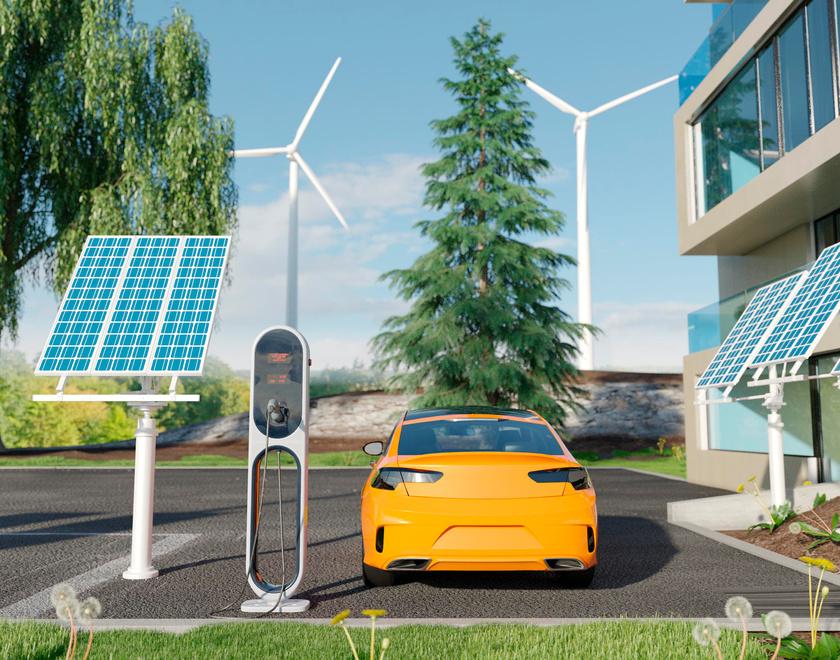

Maruti Suzuki innovates by understanding Indian consumers' evolving desires, driving technology that's customer-centric and enriching
Maruti Suzuki democratizes technology, turning challenges into opportunities for innovation and advancing the 'Joy of Mobility'
Maruti Suzuki's 'Technology Agnostic Approach' focuses on eco-friendly mobility, from upgrading powertrains to exploring electrification.
Maruti Suzuki has a reputation for being a leader in the Indian automotive industry. Can you talk about some of the challenges you face as CTO in keeping Maruti Suzuki at the forefront of innovation and technology?
The biggest challenge is to understand the changing preference of Indian consumers and their latent demand We believe that behind every technology is a latent customer demand
A deeper understanding of Indian consumers and their driving behavior/product usage is at the forefront of technology development at the company With deeper customer insights, the company develops path-breaking technologies that empower our consumers with technologies that are affordable, aspirational, relevant and at the same time enhance user experience
The phrase “CARE” [C- Customer Centric; AAspirational; R – Relevant; E – Experience] communicates Maruti Suzuki’s approach to rolling out new technology for the future
At Maruti Suzuki, we are driven by our passion for democratizing technology to spread the Joy of Mobility and empower our customers, whilst providing superlative driving experiences
Our Endeavor is that technology should benefit the masses and are not limited to a handful
The company’s focus is to offer Safe, Environment-friendly, Comfortable and Connected Technologies to Indian customers Maruti Suzuki not only provides advanced technologies in its vehicles but strives to provide the technology offering at competitive prices.
We at Maruti Suzuki take this as an opportunity rather than a challenge. As engineers, we are always overjoyed when

we drive innovations that overcome obstacles Our endeavor is to transform new product and technology development challenges into opportunities and strive to push boundaries to provide the “Joy of Mobility” to our consumers through our Product and technology offerings
With the rise of electric and hybrid vehicles, what is Maruti Suzuki’s strategy for transitioning to more sustainable forms of transportation? How is your team approaching the development of electric vehicle technology? And what is the company’s plan for EV manufacturing?
MSIL, being the market leader, is committed to offering environmentally friendly products in line with the government’s vision of a sustainable future
MSIL is following a “Technology Agnostic Approach” and is working on developing technologies which are relevant for different consumer segments considering their ability to purchase
Some of the initiatives are as follows:
1
7300 crore for setting up BEV battery manufacturing plant by 2026
1
3100 crore for EV manufacturing at SMG Gujarat by 2025
1.
Additional resources for setting up vehicle recycling plant by Maruti Suzuki Toyotsu in 2025.
How important is collaboration with other companies, both within and outside the automotive industry, in driving innovation and improving manufacturing processes for electric vehicles?
We live in a very dynamic era where car makers today are collaborating with technology companies to develop new-age solutions
It is very important to explore new synergy and business opportunities through continuous collaboration to drive innovation and make market-relevant products
One such example is the global partnership between Suzuki Motor Corporation and Toyota Motor Corporation:
The partnership establishes the supply of hybrid and other vehicle technologies between the two companies for the Indian market; enabling both companies to penetrate new segments and have access to new technologies in India and abroad
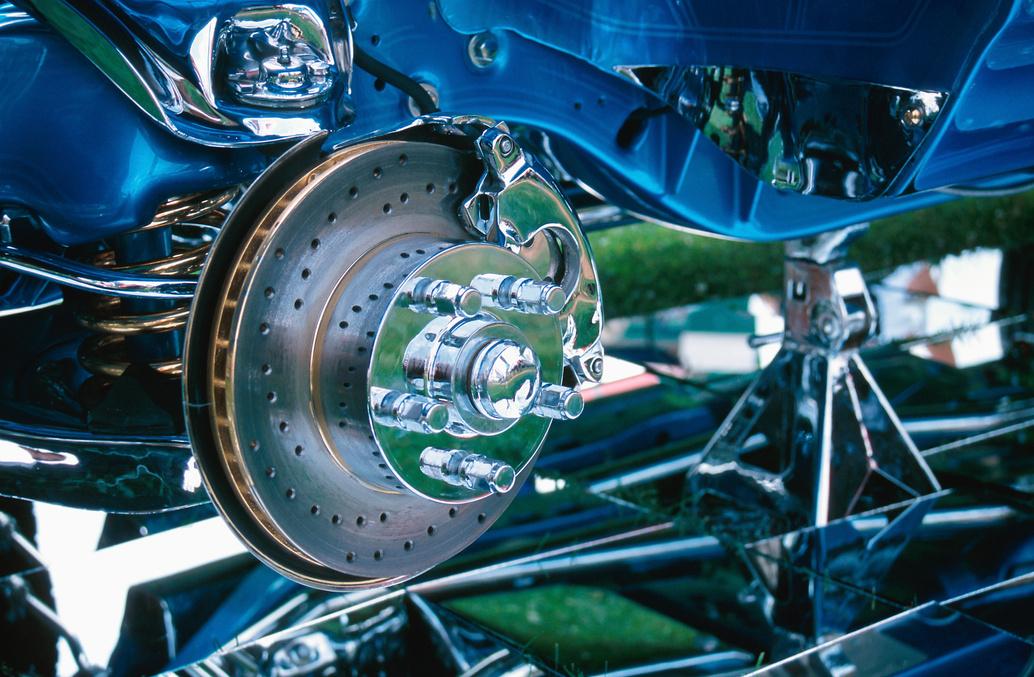
The two companies have been exploring concrete projects for collaboration in areas including environmental technology, safety technology, information technology, and the mutual supply of products and components
By leveraging the respective strengths of Toyota and Suzuki, both companies aim to offer a wide variety of vehicle electrification technologies to customers for a sustainable, carbon-neutral society in India
Going forward as Electric mobility and Autonomous vehicles come into existence, Software will play an important role This will enable motivation for collaboration with Tech companies to innovate new ways of improving customer experience Cocreation with Tech companies will become essential
In recent years, there has been a significant shift towards digitalization and connectivity in the automotive industry. How is Maruti Suzuki leveraging these trends to improve the driving experience for customers, and what role is technology playing in this transformation?
The global future vision for connected cars and smart vehicles is one where cars feature technology that seamlessly allows systems to interact with smart traffic networks, other smart cars, and smart city infrastructure for enhancing road safety, and lowering congestion, and emissions
Smart vehicles can also provide authorities with vital data for improved urban planning and optimization
We at Maruti Suzuki recognize the significance of connectivity and are committed to incorporating intelligent technologies into our vehicles as and when relevant
Maruti Suzuki vehicles equipped with the state-of-the-art Suzuki Connect enable customers with a wide range of connected features such as Remote operations, Vehicle Status and Alerts, Smartwatch connectivity, Safety Alerts, Vehicle Tracking, and lots more.
We have also taken our showrooms to the doorsteps of customers and prospects with our ARENAVerse and NEXAverse virtual platforms Enabling customers to have a gamified AR and VR experience with new cars via VR headsets or any device of their choice, such as a laptop, phone, etc

Today, backed by customer demand we have used digitalization and connectivity to revolutionize the car buying process 24 out of 26 car buying steps have been digitalized
In 2020, Maruti Suzuki became the first automotive OEM to offer an end-to-end online car finance facility for customer convenience and comfort with the launch of Maruti Suzuki Smart Finance
With services such as Maruti Suzuki Smart Finance, Maruti’s Rewards Program, ‘MS Chatbot’ or ‘S-Assist’, we have prioritized customer satisfaction while nurturing newage innovationst
This makes a huge difference 670,000+ potential customers have interacted with the Maruti Suzuki ‘Chatbot’ and 27,000+ bookings have been generated!
On a more overarching level, Maruti Suzuki also has an Innovation Programme (MAIL –Mobility and Automobile Innovation Lab in India) which aims to create an ecosystem that will provide a platform to support the start-up ecosystem in India It aims to support Technology-enabled solutions created by startups to contribute to the betterment of society and the mobility space while building on the pillars of innovation, collaboration, and co-creation
Safety is a top priority for any automotive manufacturer. What steps is Maruti taking to ensure that its vehicles meet the highest safety standards, and how is your team involved in this process?
All Maruti Suzuki vehicles are engineered to the highest standards and meet all current safety regulations with an array of high-tech and robust active and passive safety features.
The R&D teams at Suzuki Motor Corporation, Japan have developed a nextgeneration Global platform “HEARTECT Platform” that is designed with a core focus on safety Built with advanced and hightensile steel, the platform has a smooth
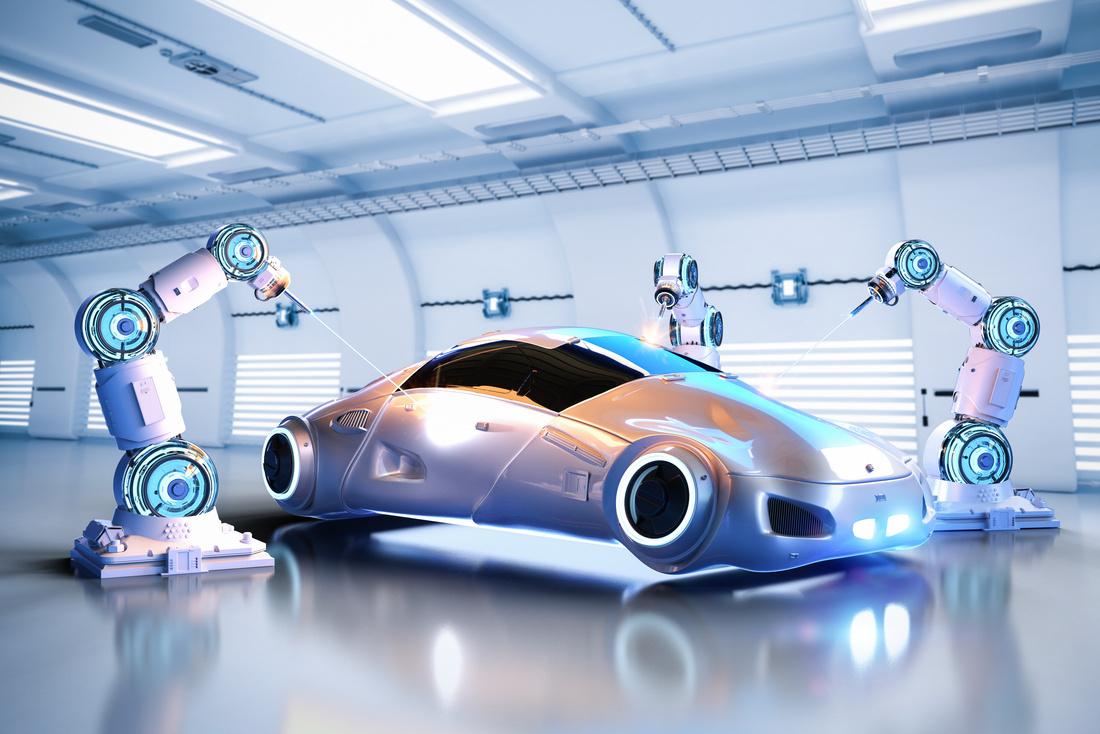
continuous design for better impact absorption in case of a collision At the same time, it offers better stability and control for enhanced driving performance and fuel efficiency The platform is adopted in all future-generation cars globally, including cars developed for India
Maruti Suzuki is committed to offering safer cars to its consumers In view of this objective, the company took the initiative to upgrade its entire range of vehicles to meet crash and pedestrian regulations much ahead of the defined timeframe
Need to appreciate that considering Indian conditions, Govt of India mandated certain additional regulations such as driver airbags, ABS, Rear parking sensors, seat belt reminders, and speed alert systems in 2019 apart from crash and pedestrian norms. These regulations are not mandated anywhere else in the world. All Maruti Suzuki models comply with all these regulations by offering technologies which are valued by consumers.
We have been awaiting the Bharat New Car Assessment Programme (BNCAP) vehicle safety regulations in India, as safety is of paramount importance to us
The Bharat NCAP system will be an authentic and objective rating system to empower the customer to make informed choices
We will be volunteering to get our cars tested under the BNCAP standards, which are the same as the revised GNCAP protocols, which adhere to global standards
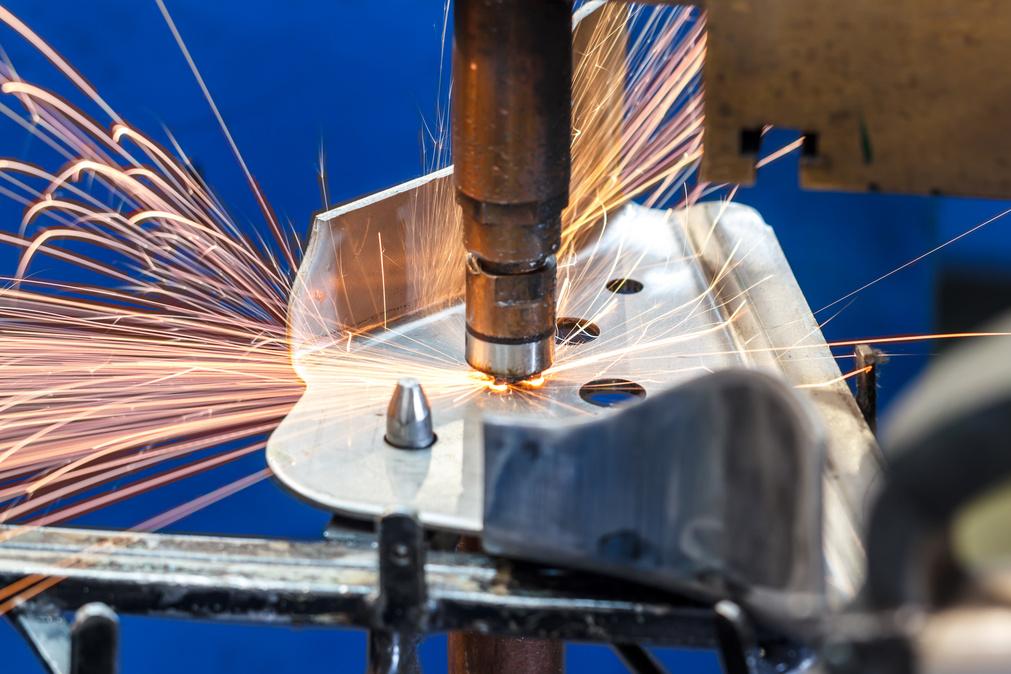
That being said, road safety needs a holistic approach; this is something that Maruti Suzuki has been pursuing for decades with initiatives such as the Maruti Suzuki Driving School, and the Institute of Driving & Traffic Research These initiatives have been offering world-class driving training facilities in India
Education and awareness are the greatest tools for inculcating a mindset and culture for safe driving behavior, and I cannot stress enough their relevance to truly making India’s roads safer

What strategies led to Hero Electric’s success as the market leader in India?
Our very genesis was based on providing mobility to the masses while working on the idea of no emissions We aimed to create an accessible, clean energy mobility solution for the common man
As we progressed in our mission, success came through our serious focus on awareness creation and then our customer-centric proposition We kept the customer at the center of it all and worked towards making ownership a matter of utility and pride for the owners
We actively engaged in campaigns and initiatives to educate people about the benefits of electric vehicles, such as reduced emissions, cost savings, and environmental sustainability By focusing on creating affordable EV options, we aimed to cater to various segments of society, making the shift to electric transportation a viable and attractive choice for a much larger audience
Success came through our serious focus on awareness creation and then our customer-centric proposition
Awareness leading to adoption, policy support and infrastructure are possibly the three growth catalysts for the Indian E2W sector
We firmly believe that strong policy backing is vital to foster a conducive environment for electric vehicle adoption at a larger scale in India.
How does Hero Electric prioritize customer satisfaction in its electric vehicle offerings?
Customer satisfaction is at the core of Hero Electric’s approach to electric mobility The customer is at the center of our product development strategy Our diverse portfolio is designed to offer a powerful value proposition addressing the varied mobility requirements of the discerning Indian consumer
Safety and efficiency have been the pillars of our product design Drawing from the extensive feedback after putting over 6 Lac vehicles on the road, over 15 years, we have mastered the design and utility mechanism Our latest powertrain offerings convert nearly every watt of battery power into useful kilometers through a super-intelligent close-loop sync system This system senses real-time variations in load and road conditions, optimizing energy usage without any wastage thereby providing the most efficient vehicle
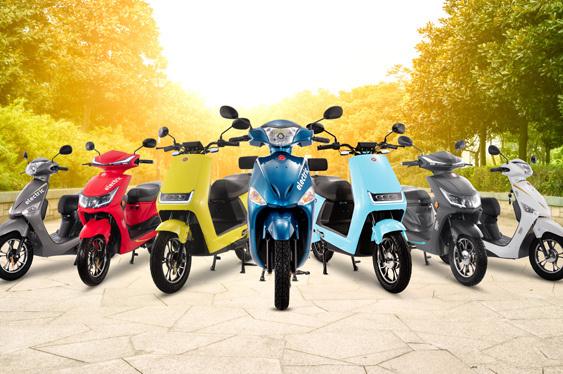

Furthermore, our product evolution has retained popular exterior designs while enhancing the core technology to present new avatars of our platforms These offerings comprehensively cater to a broad spectrum of customers seeking ‘real value for money’
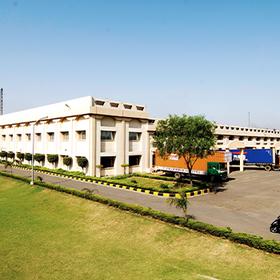
How does Hero Electric contribute to reducing emissions and promoting a cleaner environment?
Hero Electric is deeply committed to promoting a cleaner environment right from the day we were founded over 15 years back – our entire company ethos is based on reducing emissions and making the air cleaner through zero emissions
Through our awareness initiatives and campaigns, we aim to raise awareness about the benefits of going electric, emphasizing the positive impact it has on the environment
Our campaigns, such as “Go Electric”, “Code Green” and “Breathe India,” have played a crucial role in driving awareness and increasing EV adoption in India By actively promoting the advantages of electric mobility and creating a platform for dialogue, we encourage individuals and communities to make the switch to electric vehicles, thus contributing to a cleaner and greener environment These efforts align with our vision to transform the transportation landscape and create a sustainable future by reducing harmful emissions and promoting ecofriendly modes of transportation for India
What, in your opinion, are the primary growth catalysts for the Indian electric two-wheeler sector?
Awareness leading to adoption, policy support and infrastructure are possibly the three growth catalysts for the Indian E2W sector
Consumer awareness about the benefits like reduced emissions, cost-efficiency, and sustainability are helping drive interest and demand for these vehicles As more individuals understand the positive impact of electric mobility, they are increasingly inclined to switch to electric two-wheelers.
Policy support in the form of incentives or subsidies favoring electric vehicles is a crucial growth driver. Subsidies and incentives make electric two-wheelers more affordable and attractive to consumers to start with. Consumer subsidies, while they are important to initially seed the market and create enough momentum can be tapered down over a period of time on a milestone basis
We note a growing adoption of electric twowheelers, especially in urban areas with increasing concerns about pollution and environmental sustainability One of the most important ways to strengthen this increasing adoption is address the concerns of infrastructure – more charging stations and easy-to-use chargers are the need of the hour
We have begun on this journey and it is a matter of time now that electric vehicles will be embraced as viable alternatives to traditional petrol-powered vehicles
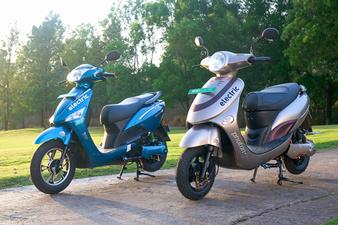
What are the primary challenges
Hero Electric encounters in the Indian market?
At Hero Electric, we deeply understand the challenges we face in the Indian electric twowheeler market, particularly the need for heightened awareness and substantial policy support. Personally, I have been actively involved in our initiatives to tackle awareness barriers. We believe it’s not just about selling a product, but about educating the public on the multitude of benefits electric two-wheelers offer in terms of reduced emissions, cost-efficiency, and environmental sustainability


Moreover, emphasizing the dire need for policy support from the government is a key part of our strategy. We firmly believe that strong policy backing is vital to foster a conducive environment for electric vehicle adoption at a larger scale in India, enhance affordability, tackle range anxiety through improved battery technology and charging infrastructure, and encourage the growth of the electric twowheeler sector
What is Hero Electric’s long-term vision for the electric two-wheeler market in India?
Hero Electric’s long-term vision for the electric two-wheeler market in India is deeply rooted in our passion for innovation Being pioneers in this industry, we are driven to constantly push the boundaries and embrace cutting-edge technologies We believe that innovation is the key to not only meeting but exceeding the evolving expectations of our consumers, ensuring that our electric two-wheelers remain at the forefront of the market
Moreover, we are excited about our future strategic diversification into the premium segment It’s a step towards providing a personalized and differentiated experience, aligning with our belief that each segment of the market deserves a unique and tailored approach to electric mobility We’re dedicated to making a lasting impact in the industry and shaping the future of electric transportation in India
What key advice would you offer to entrepreneurs aspiring to enter the electric two-wheeler industry?
My personal advice to them would be to build a long-term model There are way too many people jumping into this space without a longterm commitment or an idea of how capital and focus incentive this sector is Being at the right time and at the right place does not necessarily guarantee success!
In order to succeed, they have to understand and focus on what the customer wants and is asking for and then exceed those customer expectations
Then one has to focus on themselves The entrepreneur has to be completely convinced of his or her model before trying to convince others be it employees, customers, suppliers or other stakeholders
Another critical factor is the focus I believe they have to live, eat, and breathe electric as we have for over 15 years now!
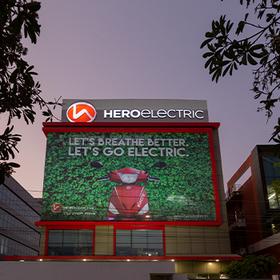
As India takes bold strides towards a sustainable and electric future, the integration of smart grids is emerging as a key enabler for the rapid adoption of electric vehicles (EVs) across the country Smart grid technology is revolutionizing the way energy is produced, distributed, and consumed, providing a robust foundation for efficient and accelerated EV charging infrastructure deployment
The conventional power grid was not initially designed to handle the demands posed by the growing fleet of electric vehicles. However, smart grids, equipped with advanced communication and control systems, are transforming the energy landscape by addressing the unique challenges associated with EV charging.
One of the primary advantages of smart grid integration is the ability to manage and optimize energy distribution With real-time data and advanced analytics, smart grids can forecast and balance the load on the electrical grid, ensuring that charging stations operate efficiently without causing grid congestion This not only enhances the reliability of the power supply but also prevents overloads and blackouts, critical factors in supporting the widespread deployment of EV charging infrastructure
Smart grids play a crucial role in demand response, allowing utilities to manage peak load times effectively This capability is especially significant in the context of EV charging, as it enables utilities to incentivize off-peak charging, reducing strain on the grid during periods of high demand Through dynamic pricing models, consumers can be encouraged to charge their EVs during times when electricity demand is lower, contributing to grid stability and cost optimization
Furthermore, the integration of smart grids enhances grid resilience and reliability In the event of power outages or disruptions, smart grids can
autonomously reroute energy flows, minimizing downtime for EV charging stations This ensures that EV users can continue to charge their vehicles even during unforeseen circumstances, promoting confidence in the reliability of electric mobility
Smart grids also facilitate the integration of renewable energy sources into the charging infrastructure As India aims to increase its reliance on clean and sustainable energy, incorporating solar and wind power into the smart grid ecosystem becomes imperative. This not only aligns with the country's commitment to reducing carbon emissions but also contributes to the greening of the EV charging process, making it more environmentally friendly
In addition to optimizing energy distribution, smart grids enable effective load management at the individual consumer level Through advanced metering infrastructure and smart meters, consumers gain insights into their energy consumption patterns. This empowers them to make informed decisions about when to charge their EVs, aligning with grid conditions and their own preferences The two-way communication facilitated by smart grids fosters a more collaborative and participatory approach to energy consumption
As India continues to witness a surge in EV adoption, the role of smart grids in creating an integrated and responsive charging infrastructure cannot be overstated The synergy between smart grids and EV charging aligns with the government's vision of promoting clean mobility and achieving energy sustainability The ongoing efforts to build a smarter, more resilient grid lay the groundwork for a future where EV charging is not just efficient but also seamlessly integrated into the broader energy ecosystem, marking a transformative step towards a cleaner and more sustainable transportation landscape in India
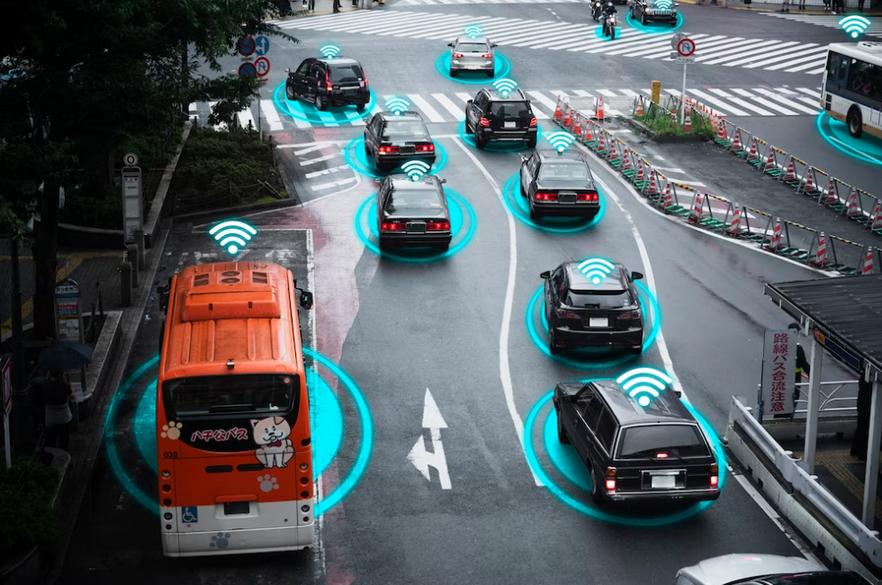

Electric vehicles (EVs) have become a focal point in the global pursuit of sustainable and eco-friendly transportation solutions While the shift towards electric mobility is gaining momentum in urban centers, there is a persuasive case for the expansion of EV charging infrastructure across rural India This move not only promises economic advantages but also addresses pressing environmental concerns, aligning with the nation's commitment to a greener and more sustainable future
In rural India, where traditional modes of transportation have been deeply ingrained in daily life, the introduction of EVs represents a transformative opportunity The economic impact of expanding EV charging infrastructure in these areas is multi-faceted and has the potential to usher in positive changes that extend far beyond transportation
One significant economic aspect is the potential for job creation The installation, operation, and maintenance of EV charging stations require a skilled and semi-skilled workforce As these charging stations become more prevalent in rural areas, a new sector of employment can emerge, contributing to economic growth and offering livelihood opportunities in regions that may have been predominantly agrarian
Moreover, the expansion of EV charging infrastructure acts as a catalyst for local businesses Charging stations can serve as focal points for economic activity, attracting EV users who, during the charging process, may explore nearby shops, cafes, or service centers This symbiotic relationship fosters economic development by encouraging entrepreneurship and diversifying the local economy
The promotion of rural tourism is another economic benefit associated with the expansion of EV charging infrastructure As charging stations become strategically located in picturesque rural landscapes, EV users are more likely to explore and appreciate the natural beauty of these areas This influx of visitors can stimulate local economies by creating demand for hospitality services, handicrafts, and cultural experiences, thereby promoting tourism as a significant economic driver
However, the economic benefits are just one side of the coin; the environmental advantages of expanding EV charging infrastructure in rural India are equally compelling. Traditional internal combustion engine vehicles have contributed to air pollution in both urban and rural areas. The adoption of EVs and the corresponding expansion of charging infrastructure have the potential to significantly reduce air pollution levels in rural regions
One of the key environmental benefits is the reduction of greenhouse gas emissions As the global community grapples with climate change, transitioning to electric mobility becomes imperative The expansion of EV usage in rural areas contributes to the national commitment to reduce carbon emissions and mitigate climate change This shift is particularly impactful in regions where agricultural activities are prevalent, aligning with sustainable development goals



Additionally, the use of EVs in rural areas contributes to the preservation of natural resources Electric vehicles are generally more energy-efficient than their internal combustion counterparts By encouraging the adoption of EVs in rural India, there is potential to decrease the overall demand for fossil fuels, contributing to energy security and aligning with broader environmental conservation goals
While the economic and environmental benefits of expanding EV charging infrastructure in rural India are compelling, challenges must be addressed to ensure successful implementation Infrastructure investment stands out as a critical factor; substantial financial resources are required to set up charging stations across vast rural landscapes Public-private partnerships, government incentives, and international collaborations can play a crucial role in overcoming these financial barriers
Awareness and education are equally vital components of a successful expansion strategy Rural communities may lack information about the benefits of EVs and the charging infrastructure Outreach programs, workshops, and campaigns can bridge this information gap, fostering a positive perception and understanding of EVs in rural India
Technological adaptation is another challenge, as rural areas may face obstacles in adopting new technologies Ensuring that charging stations are user-friendly, reliable, and supported by adequate training for local personnel is vital Leveraging mobile applications and digital platforms can enhance the accessibility and usability of EV charging infrastructure in rural India.
Government policies play a pivotal role in steering the expansion of EV charging infrastructure in rural India. Initiatives such as subsidies for charging station installations tax incentives for businesses supporting EV infrastructure, and awareness campaigns can create an enabling environment Policymakers need to collaborate with industry stakeholders to formulate comprehensive strategies that address both economic and environmental dimensions
In conclusion, the case for expanding EV charging infrastructure across rural India is not merely a matter of technological advancement; it represents a strategic move that intertwines economic prosperity with environmental stewardship The symbiotic relationship between economic benefits for rural communities and positive environmental impacts makes a compelling argument for concerted efforts in this direction As India strives for inclusive and sustainable growth, the electrification of rural transportation can be a transformative step towards a cleaner, greener, and more economically vibrant future
In recent years, India has witnessed a significant surge in the adoption of electric vehicles (EVs) as a part of its commitment to sustainability and reducing the carbon footprint As the nation makes strides towards a cleaner and greener future, the focus on developing a robust EV charging infrastructure has become paramount Technological innovations are playing a pivotal role in shaping the landscape of EV charging infrastructure in India, paving the way for a sustainable and efficient ecosystem
While the adoption of electric vehicles is on the rise, the existing EV charging infrastructure in India faces several challenges, including limited coverage, varying charging standards, and the time-consuming nature of conventional charging methods Addressing these challenges requires a multifaceted approach that incorporates cutting-edge technologies to create a seamless and user-friendly experience for EV owners
One of the key technological advancements shaping the future of EV charging infrastructure in India is the implementation of smart charging stations These stations leverage the Internet of Things (IoT) and realtime data analytics to provide an intelligent and efficient charging experience Smart charging stations offer features such as remote monitoring, predictive maintenance, and dynamic load management, optimizing the utilization of resources and ensuring a smooth charging process
In a country with a vast and diverse landscape like India, the need for fast-charging solutions is imperative Technological innovations in fast charging are accelerating the transition to electric mobility by significantly reducing charging times The introduction of high-power chargers, capable of delivering a substantial amount of energy in a short period, is a game-changer This not only enhances the convenience for EV users but also encourages the widespread adoption of electric vehicles
Battery swapping stations are emerging as a revolutionary solution to address the time constraints associated with traditional charging methods This innovative approach allows users to exchange their depleted batteries for fully charged ones, eliminating the need for extended charging stops Automated battery swapping stations are gaining traction, providing a quick and hassle-free alternative that enhances the overall efficiency of electric vehicle usage.
To ensure interoperability and a seamless charging experience, standardization of charging protocols is crucial The adoption of globally recognized charging standards, such as CCS (Combined Charging System) and CHAdeMO, facilitates compatibility among different electric vehicle models and charging infrastructure This standardization not only simplifies the charging process but also encourages the development of a more cohesive and interconnected charging network
A sustainable future requires the integration of renewable energy sources into the charging infrastructure. Solar-powered charging stations are gaining prominence, harnessing the abundant sunlight in India to generate clean energy for EVs. This not only reduces the environmental impact but also contributes to the development of a green and selfsustaining charging infrastructure.
The advent of mobile applications and digital platforms dedicated to EV charging has transformed the way users interact with the charging infrastructure These platforms provide real-time information on the location and availability of charging stations, along with features like remote monitoring, payment integration, and user feedback The seamless integration of technology through user-friendly apps is fostering a user-centric approach and enhancing the overall EV ownership experience
Government initiatives and policy support are instrumental in shaping the future of EV charging infrastructure in India Incentives, subsidies, and regulatory frameworks are essential components that promote the development and deployment of advanced charging technologies The government's commitment to creating a conducive environment for electric mobility accelerates the integration of innovative charging solutions across the country
While technological innovations are driving the transformation of EV charging infrastructure in India, challenges persist These include the need for massive investments, public awareness, and overcoming range anxiety Collaborative efforts between the government, private sector, and other stakeholders are essential to address these challenges and create a sustainable and resilient charging ecosystem
In conclusion, the future of EV charging infrastructure in India is being shaped by a wave of technological innovations Smart charging stations, fast charging technologies, battery swapping stations, standardization of charging protocols, integration with renewable energy sources, and the rise of digital platforms are collectively contributing to a paradigm shift in the electric mobility landscape As India charges ahead towards a cleaner and sustainable future, the convergence of technology, policy support, and public awareness will play a pivotal role in realizing the full potential of electric vehicles.


Introduction:

As the global automotive landscape undergoes a profound shift towards sustainable practices, the importance of electric vehicles (EVs) is becoming increasingly evident However, the sustainability of electric mobility extends beyond the vehicles themselves The energy sources powering EV charging networks play a critical role in determining the overall environmental impact In this current affairs article, we delve into the significance of integrating renewable energy into EV charging networks and the transformative impact it can have on the sustainability of our transportation systems.
The Rise of Electric Vehicles:
The surge in EV adoption worldwide is a testament to the collective commitment towards mitigating climate change and reducing dependence on fossil fuels. Governments, industries, and consumers are recognizing the need to transition towards cleaner modes of transportation, with EVs emerging as a frontrunner However, the sustainability of electric mobility goes beyond zero-emission vehicles; it encompasses the entire ecosystem supporting these vehicles, with a particular focus on the energy sources powering EV charging networks
The Environmental Impact of Charging Networks:
The conventional grid reliance for powering EV charging stations often results in a significant carbon footprint, depending on the energy mix of a particular region This has led to concerns about whether the widespread adoption of EVs truly translates into a reduction in overall greenhouse gas emissions To address this, a paradigm shift towards integrating renewable energy sources into EV charging networks is imperative
Renewable Energy Integration:
Renewable energy sources, such as solar, wind, and hydropower, present a compelling solution to the environmental challenges associated with conventional grid reliance By harnessing these clean energy sources to power EV charging stations, we can substantially reduce the carbon footprint of electric mobility The integration of renewable energy not only aligns with global sustainability goals but also enhances the resilience and reliability of the charging infrastructure

Wind and Hydropower Integration:
In regions where sunlight might be inconsistent, wind and hydropower offer viable alternatives for sustainable energy generation Wind turbines and hydropower stations can contribute to the grid, ensuring a constant and renewable power supply for EV charging networks The diversification of energy sources enhances the reliability of the charging infrastructure, addressing concerns about intermittent renewable energy generation.
Government Initiatives and Policy Implications:
Governments worldwide play a crucial role in steering the transition towards sustainable EV charging networks Policy incentives, subsidies, and regulations that promote the integration of renewable energy can accelerate the shift towards a green grid Financial support for solarpowered charging infrastructure, tax credits for businesses investing in renewable energy, and streamlined permitting processes can create a favorable environment for sustainable EV charging networks to flourish
Conclusion:
The intersection of electric mobility and renewable energy holds immense potential for transforming our transportation systems into sustainable, eco-friendly networks As the world pivots towards a greener future, the integration of renewable energy into EV charging networks stands as a beacon of innovation and environmental responsibility Governments, industries, and consumers must collectively champion this cause to ensure that the promise of electric mobility is realized in its truest, most sustainable form The green grid is not just a technological advancement; it is a commitment to a cleaner, more sustainable future for generations to come
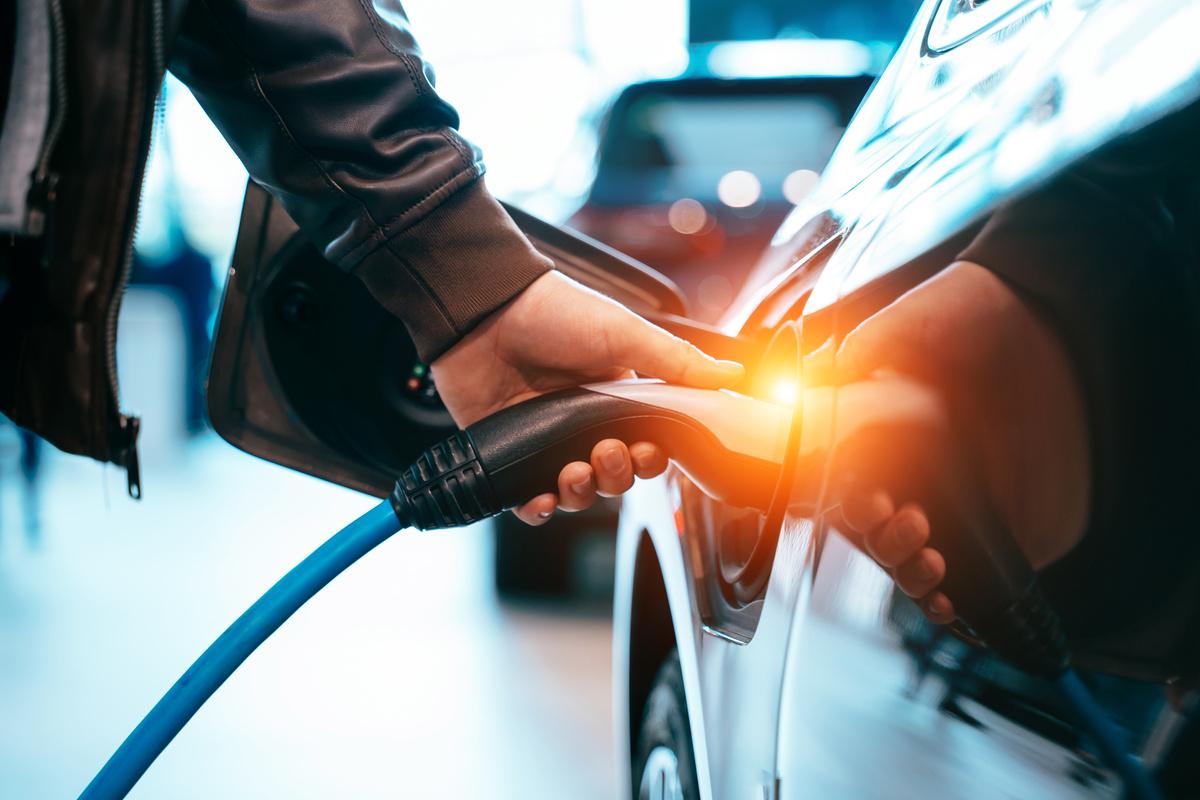


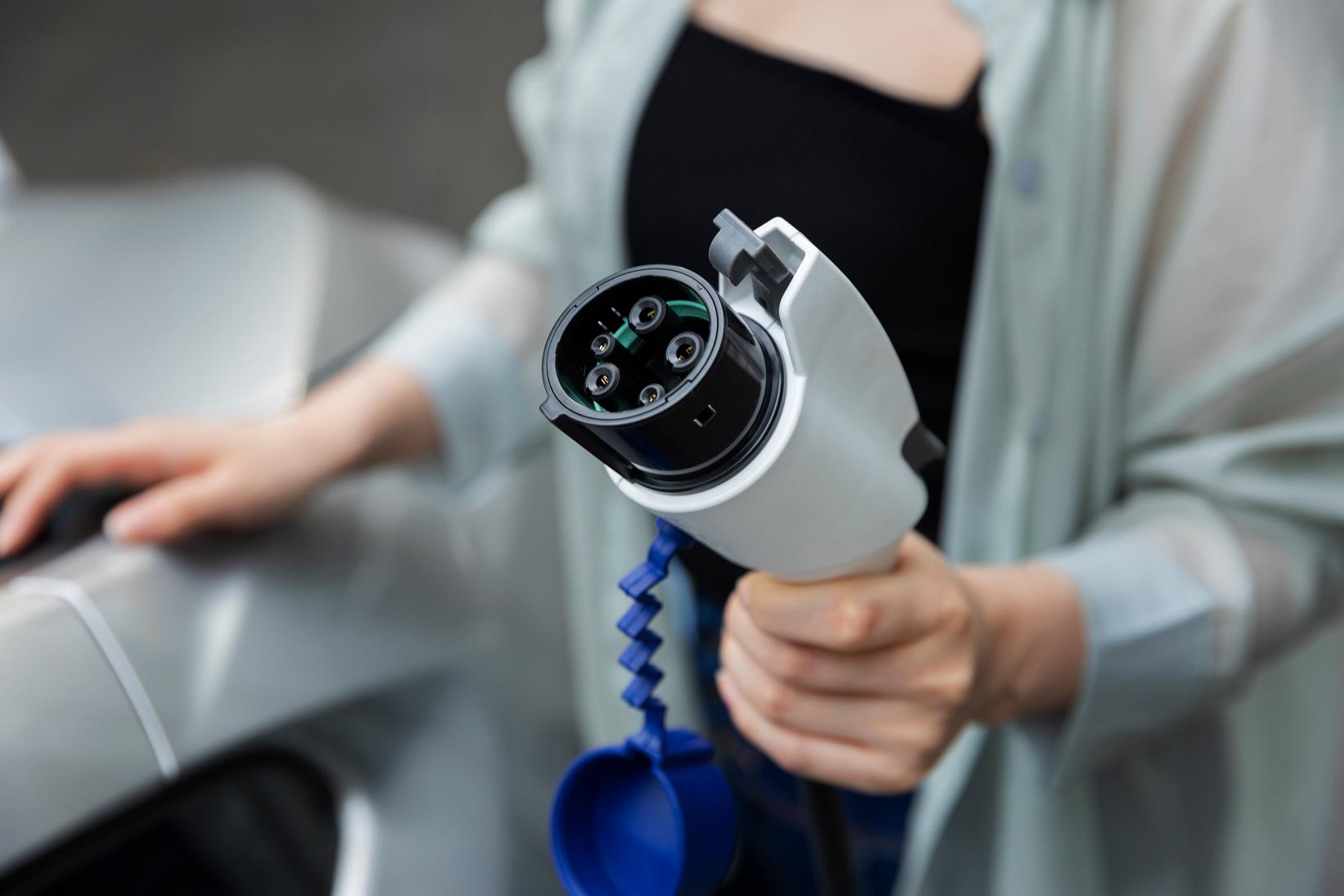
India is at the cusp of a significant transformation in the automotive industry, with a growing emphasis on electric vehicles (EVs) as a sustainable and eco-friendly mode of transportation As the country strives to reduce its carbon footprint and dependence on fossil fuels, the government's role in shaping and accelerating the growth of the EV charging infrastructure becomes paramount This column delves into the policies necessary for India to build a robust EV charging network, essential for the successful adoption of electric vehicles
The Current Landscape:
While India has witnessed a surge in EV adoption, particularly in twowheelers and electric rickshaws, the lack of a comprehensive charging infrastructure has been a bottleneck for widespread electric vehicle usage The current charging infrastructure is predominantly concentrated in urban areas, leaving vast regions underserved The existing charging stations face issues such as inconsistent charging standards, insufficient power supply, and a dearth of public awareness
Government Initiatives:
Recognizing the need for a comprehensive charging network, the Indian government has taken several steps to promote and facilitate the growth of EV infrastructure One of the landmark policies is the Faster Adoption and Manufacturing of Hybrid and Electric Vehicles (FAME) scheme Under FAME, the government provides financial incentives for both consumers and charging infrastructure providers, aiming to catalyze the adoption of EVs and create a robust charging ecosystem
The FAME scheme includes subsidies for electric vehicles, charging stations, and research and development in the electric mobility sector However, to ensure its effectiveness, continuous evaluation and adjustments are necessary to align with the evolving needs of the market.
Standardization and Interoperability:
A critical aspect of a successful EV charging network is the standardization of charging infrastructure The government should play a pivotal role in establishing and enforcing charging standards to ensure interoperability among different charging stations and EV models Standardization will not only simplify the user experience but also encourage private investment in charging infrastructure, as investors can be confident in the longevity and compatibility of their assets

Building a widespread and efficient EV charging network requires collaboration between the government and the private sector The government should actively encourage private investment in charging infrastructure through incentives, tax breaks, and streamlined regulatory processes. Public-private partnerships can help share the financial burden, expedite the deployment of charging stations, and leverage the expertise of both sectors.
Government policies should prioritize inclusivity and accessibility to ensure that the benefits of the EV revolution are not confined to urban centers Rural areas and highways must be equipped with charging stations to promote long-distance travel and widespread EV adoption Additionally, the government can explore innovative solutions such as mobile charging units and community-based charging stations to address the unique challenges faced by different regions
Awareness and Education:
Creating awareness among the public is crucial for the success of the EV charging network Government campaigns should focus on dispelling myths, highlighting the environmental benefits, and showcasing the cost advantages of electric vehicles By fostering a positive public perception, the government can stimulate demand for EVs, driving the need for an expansive charging network
Conclusion:
The transformation towards electric mobility is inevitable and the government's role is pivotal in shaping a conducive environment for its success By implementing and refining policies that focus on standardization, public-private partnerships, inclusivity, and awareness, India can power progress and establish a robust EV charging network This not only aligns with global sustainability goals but also positions India as a leader in the electric mobility revolution The time is ripe for the government to seize this opportunity and accelerate the electrification of the nation's transportation landscape


E-Mobility+ publications, distributed pan-India, sets a new standard in EMobiliy+ energy media. With over 200+ and a growing list of advertisers, we work with who's who in the industry across our platforms from print magazines to social media platforms put their brands first and ensure the best delivery of the marketing needs.


Ensures best delivery of the marketing needs
Highest Circulation & Readership
Customizable Product Layout
Well Researched Editorial Content
Most read by Key Decision Makers
Get access to our upcoming events insights & updates





INDIA FLEET EXCELLENCE
2023



Best E-Fleet for Consumer Goods Logistics
UNOXpress by Omega Seiki Mobility

Electric Fleet Transition Success of the year (Cab)
Everest Fleet Private Limited

Best Fleet for Cold Supply Chain Management of the Year (Consumer Goods)
Snowmax Logistics Private Limited
Innovative Fleet Maintenance Solutions
ReadyAssist


Best Fleet Management Company of the Year (Cab)
Everest Fleet Private Limited
Sustainable Fleet Initiative of the Year (2W, 3W, LCM, HCV)
Bombay Logistics


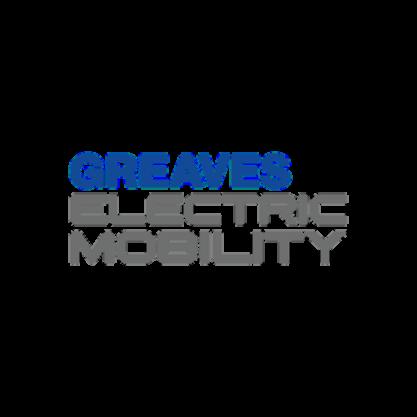
Vehicle For E-commerce Fleet (2W)
Zeal Ampere from Greaves Electric Mobility
Innovative Auto ancillary Product (Automatic Wheelchair Lift )
ARM 900 from Tapco Pneumatics Pvt. Ltd.

Best Electric Vehicle Model for Fleet Applications (Commercial)
Samrat - E-Loader & Gati - ELoader Butterfly from Lord's Automative Pvt. Ltd.


Best Electric Vehicle 2W Model for Cargo Fleet Applications
MUVI Cargo from eBikeGO

Smart Fleet Management Platform
Inspacco (Prophandy Technologies Private Limited)

Innovative Fleet Management Technology for Commercial Vehicles
Lithium Urban Technologies

ation for Digitizing ents in Transit & port Sector
Payments Bank

Efficient Delivery Vehicle (3W)
Greaves Eltra from Greaves Electric Mobility
Best Performing Inverter
SolaX Power Network Technology (Zhejiang) Co., Ltd.

Fleet Maintenance and Repair Service Provider (2W, 3W, LCM, HCV)
myTVS ( Ki Mobility Solutions Pvt. Ltd)

Corporate Mobility Solution Provider (Commute)
Lithium Urban Technologies

Charging Infrastructure for Fleet (Public)
JIO BP Mobility





